Best Fronds Modern Edge to Edge Quilting Design

Longarm League member Rebecca Grace Quilting (if you like reading quilting blogs, you'll love Rebecca's!) sent me an email a while back with a photo of home dec fabric, noting the design would make a great digital pantograph design.
I agreed wholeheartedly and tucked it away in my brain to think about later. You see, being the "Commish" of the Longarm League means that 95+% of the time, I'm working on all things other than designing pantographs. I love this part of the job, though, and hope to devote more time to it in the future.
The leafy design was very appealing to me, but the biggest problem was that I could NOT figure out what portion of the design I could repeat to get the overall effect. It took a few days of playing around in Art and Stitch and doodling on my Remarkable tablet to crack the code.


Once that code was cracked, the other major dilemma was to figure out how to sequence the stitch path so that it'd make "nice" lines. It was pretty clear that I'd ne...
May Flowers Digital Quilting Design
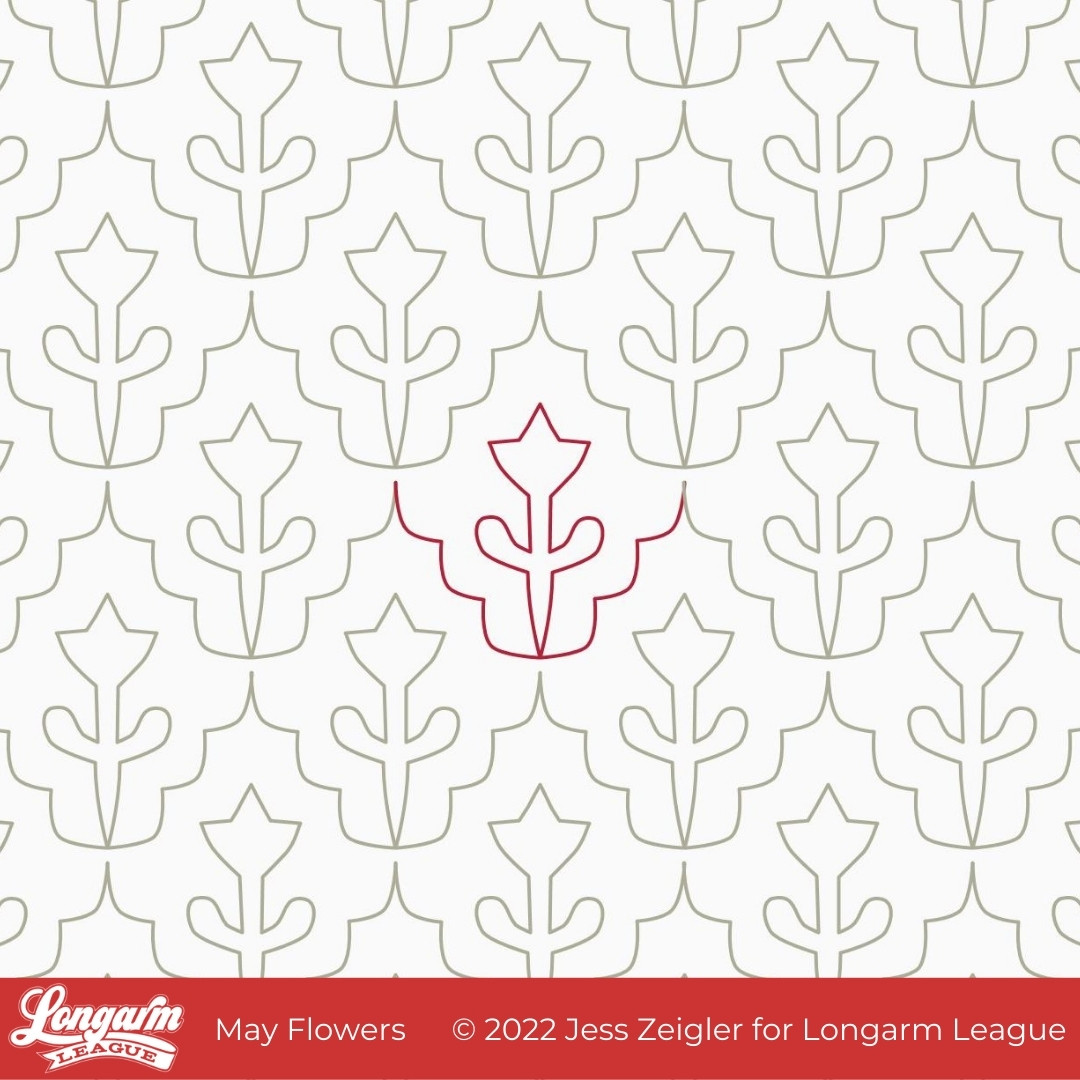
You know what they say about April showers... they bring May Flowers!
April was a dreary, wet month where I live in Central Iowa and it's actually continuing into the first few days of May. But we have hope that sunshine and flowers will appear very soon!
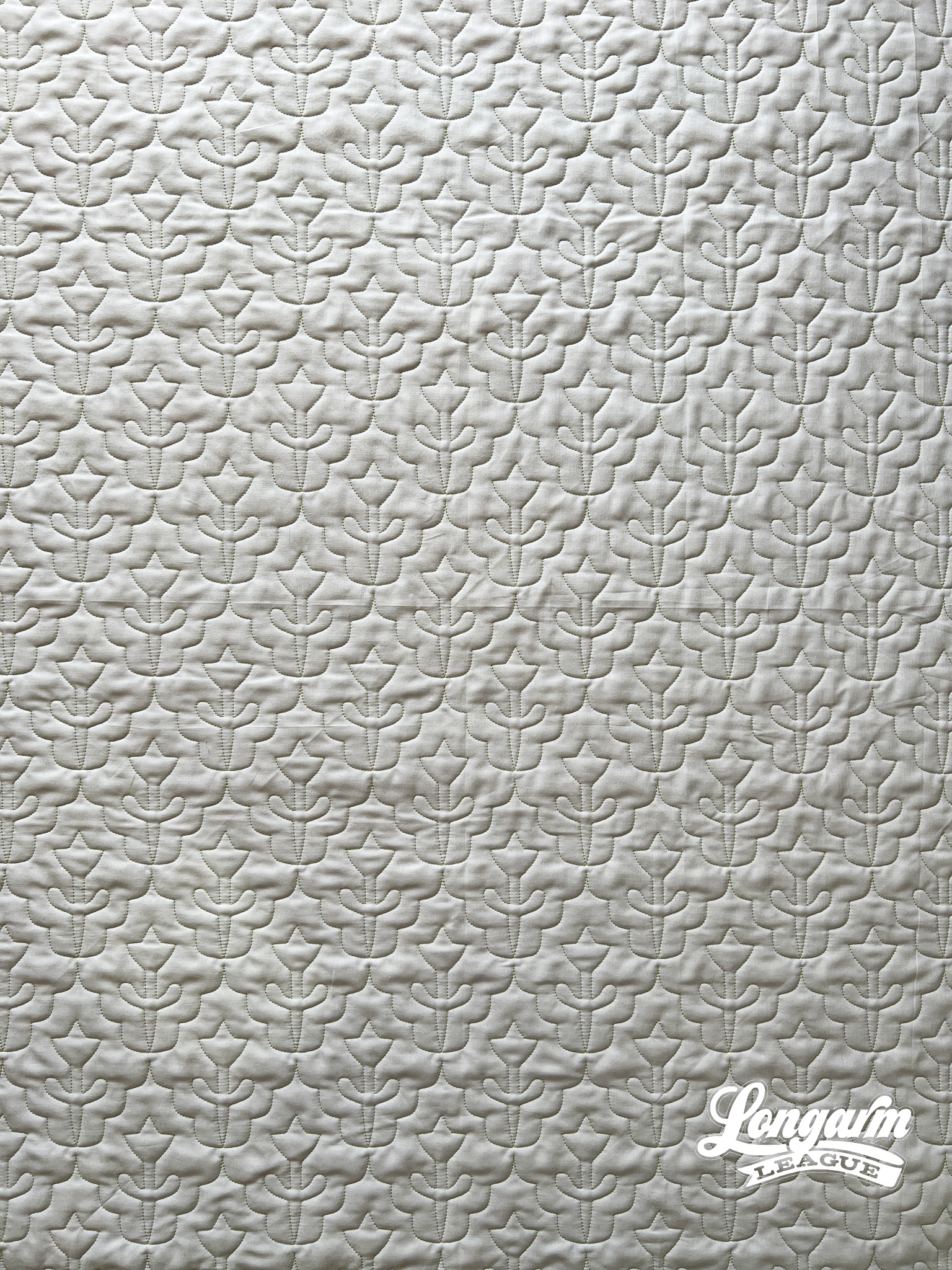
I really love Scandinavian design and I hope that comes across in this simple tulip-esque pantograph. To jazz it up just a bit, I added a scalloped edge to the repeat. It should be a great choice for the upcoming spring quilts in your queue.
May Flowers could be used both on traditional and modern quilts—the scale is adaptable, as well. I'll give you my details for this sample below.
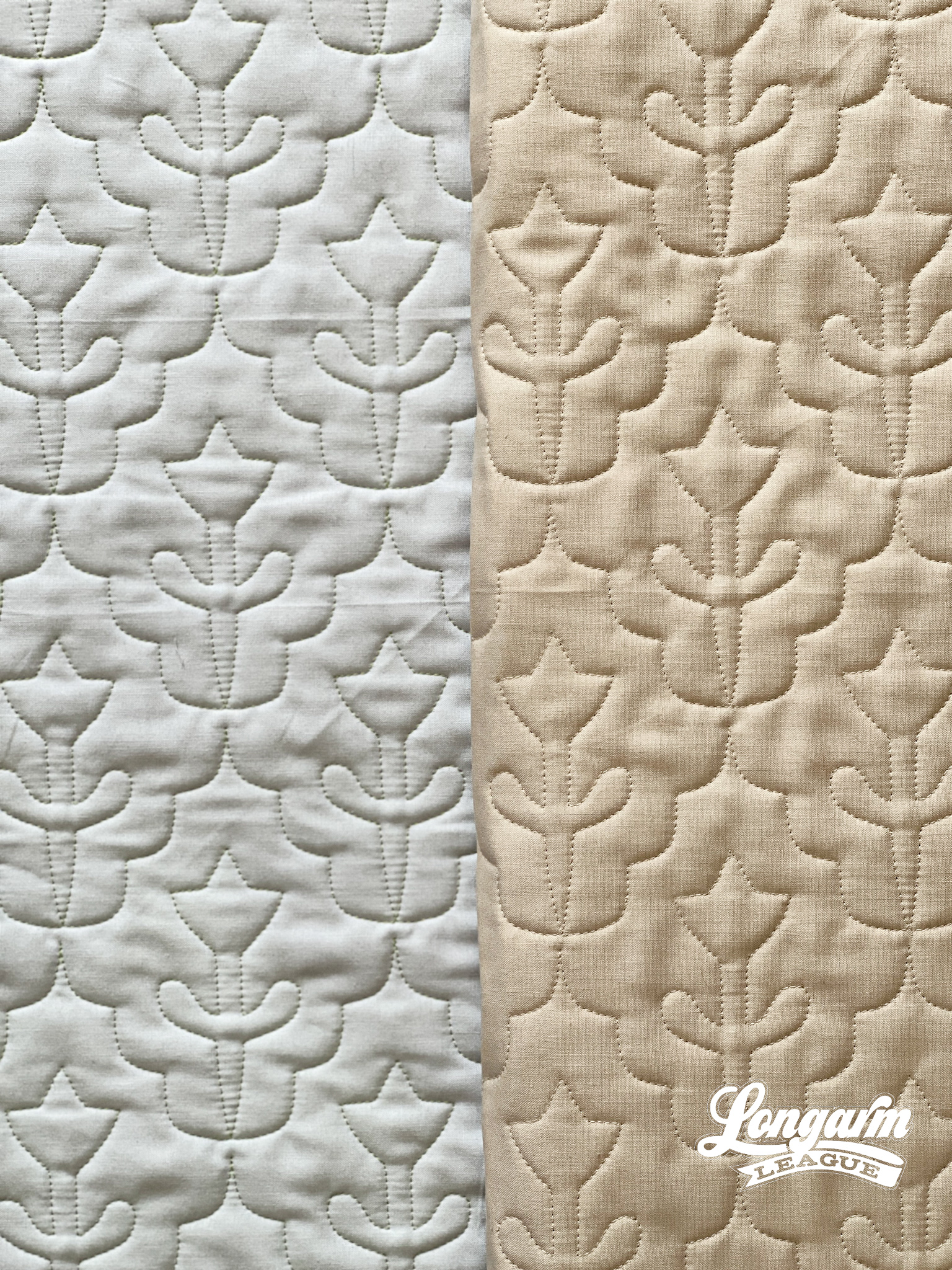
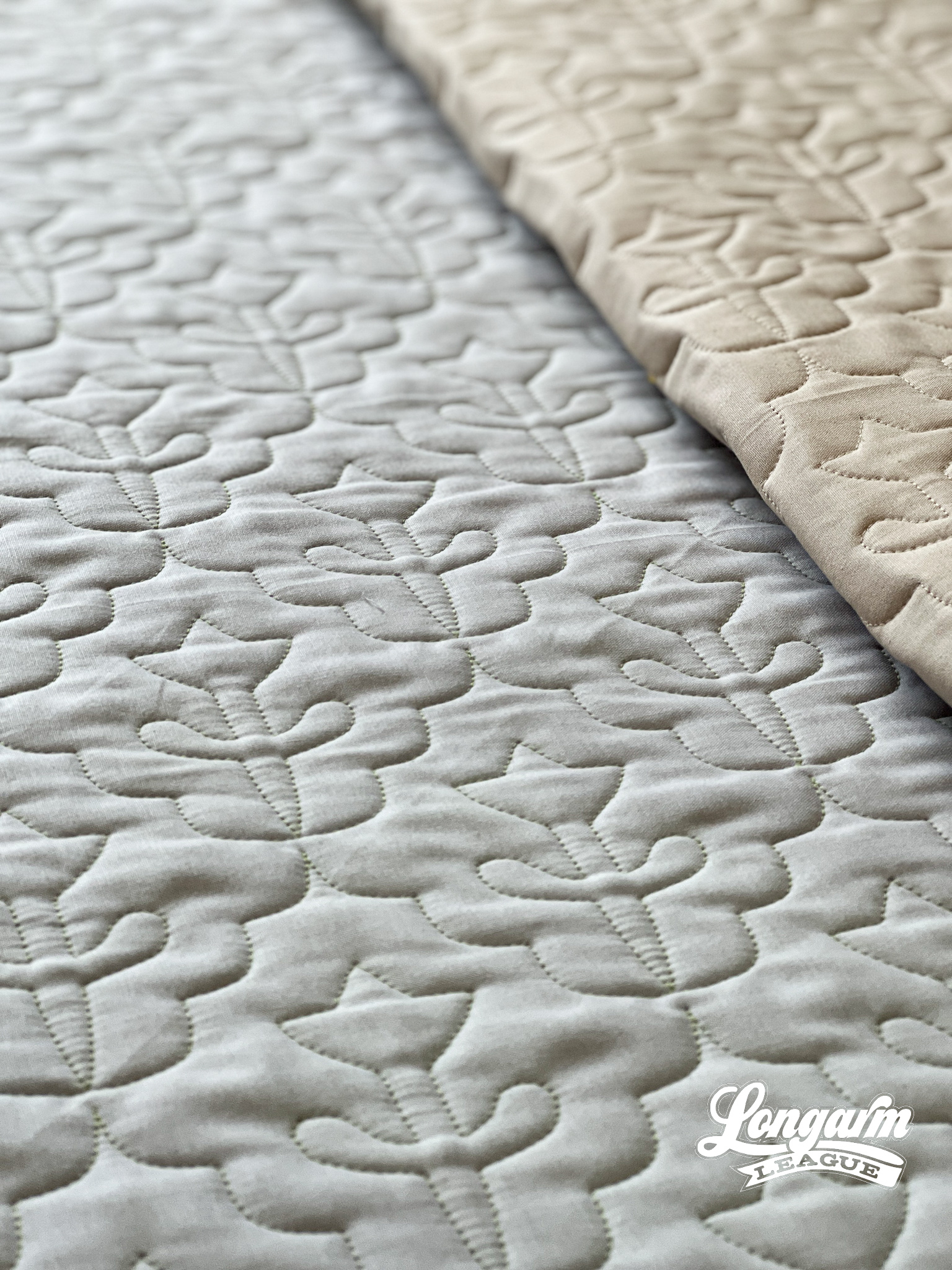
Here are my specifics using a baby-sized sample in the photos (45" x 45" quilt size):
Row height: 3"
Gap: -1"*
Pattern height: 4"
Offset: 50%
Backtracking: none
*Gap refers to the space I'm allowing between rows. I use an Intelliquilter for my computerized quilting, and because that measurement is quantifiable, I provide it here.
The row h...
SewTites - Product Review
New SewTites Magnum Video Tutorial
Let's cut to the chase: Shelly Moore of Ma Tante Quilting recorded the following extremely helpful video. I'd definitely recommend watching it if you are considering investing in SewTites Magnums.
Loading is so important
One of the first and most important decisions that a longarm quilter needs to make is how they're going to load a quilt to their frame.
Pinning is how a lot of us first learn, but it's time consuming, may cause you to snag/tear clothing, and can be painful if you catch your skin, and might even cause you to bleed on a quilt. Other systems like a dowel-and-clamp system are faster, but can be bulky and affect the precision of tricky or dense pantographs when you're a computerized quilter like me. Some quilters lack the hand strength they need to do the clamping, and when working with bulky fabrics like Minky, clamping becomes that much more difficult. Some clamping systems that aren't necessarily heavy or high-profile are not ...
Echoed Swirls and the Mini Modern Heart Quilt
This is not a drill. I was able to work on a quilt top I started making for myself back in 2017.
About a month ago, I was invited to a quilting retreat at Stitch Supply Co. in Altoona, Wisconsin. I had the best time! It really supercharged my desire for patchwork again. Now I want to finish WIPs and start new projects with the fabulous fabric I bought there.
For this project, the quilt pattern I used is called Mini Modern Heart. It's actually a foundation paper piecing block I designed to use up small scraps of fabric. It certainly is a good pattern for doing just that!
My original intention was to make one block per day for a year—but, you know—life happened and I came up WAYYYY short of my goal.
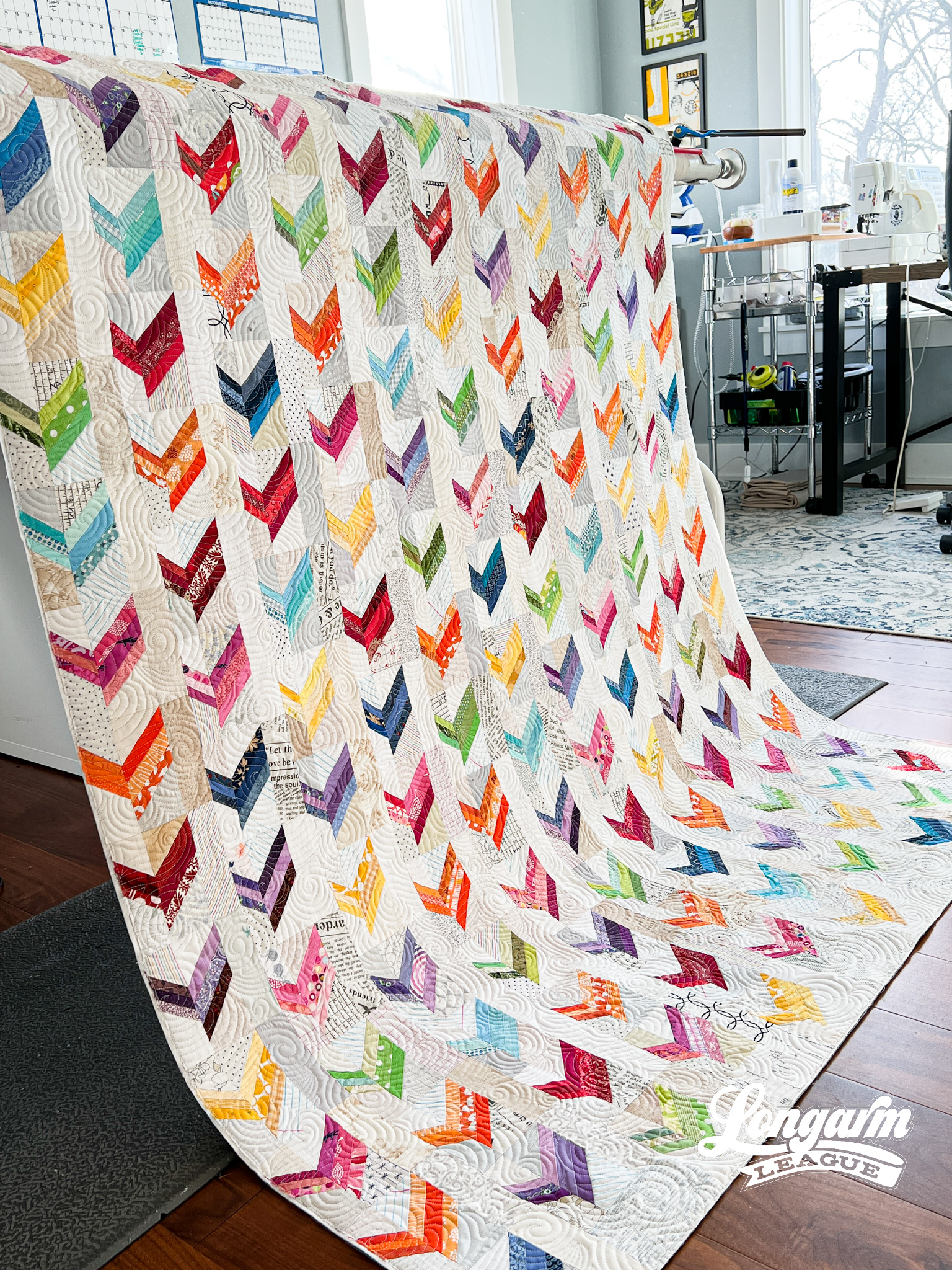
At the retreat, I decided to wrap-up the project once and for all. I abandoned my original plan (365 blocks) when I realized that I had enough blocks to make a nicely sized lap quilt.
And guess what?! I ended up with 11 columns of 13 blocks each, which is drumrolllllllll... 143 ...
Beleaf It or Not Digital Pantograph
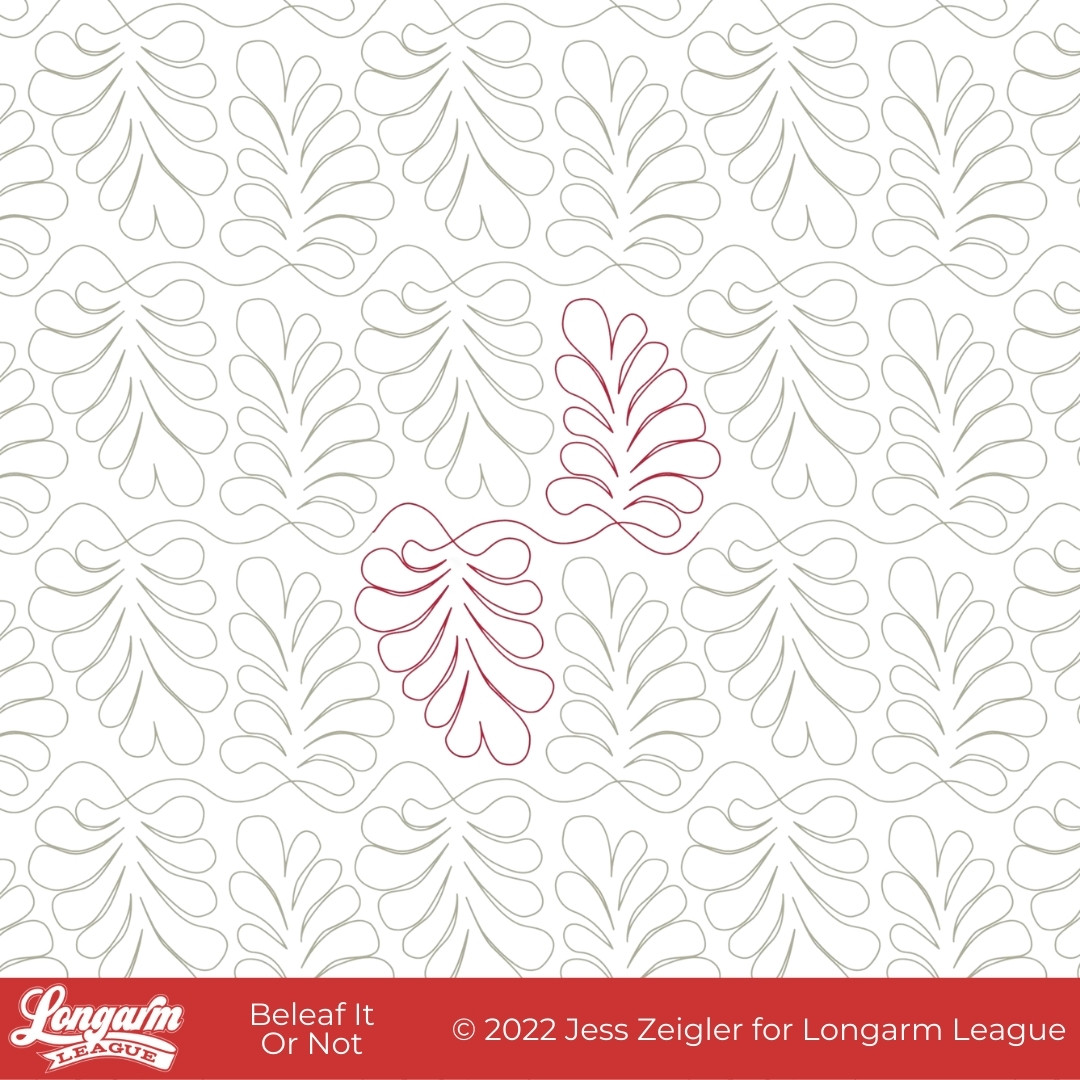
Quilty friends, naming designs is hard work. I was struggling to come up with a name for this design so I texted my mom and sister a photo of the finished sample, asking them for help. My sister's first response was Beleaf It Or Not and I laughed out loud so much that I had to go for it.

Seinfeld—because of the huge influence in our lives—has become part of our shared language. 'Beleaf It or Not' immediately reminded me of the episode that features George's outgoing answering machine message where he changed the words to the song "Believe It or Not".
THAT is what makes me giggle every time I think of it.

When I design edge to edge pantographs, my number one goal is to create interesting textures. I really love the repeated round shapes of the "leaves"—or as quilters would call them, feathers.

Here are my specifics using a baby-sized sample in the photos (45" x 45" quilt size):
Row height: 5.94"
Gap: -4.86"*
Pattern height: 10.8"
Offset: none
Backtracking: none
*Gap refe...
Mako and Thresher Digital Quilting Designs
Mako

I promise I'm not six years old and obsessed with sharks... even though both of these designs happen to named after sharks. I don't see it becoming a trend.
I came up with this design about a year ago. I originally named it Shark Smile because
- the repeat looks like a shark's tooth
- there's a song called "Shark Smile" from a band I love called Big Thief. Click here to listen to the song.
For fear that this blog post could start to remind you of those recipes you find online with an ENTIRE personal story attached {when you just want the recipe}, I do have a brief anecdote.
We saw Big Thief perform "Shark Smile" in Des Moines several years ago. The venue was so small and intimate. At one point of the song, the lyrics are "...as we went howling through the edge of south Des Moines". After the song ended, the lead singer talked about being nervous to sing that line in front of us—I don't know if she realized it beforehand. It was the perfect thing to say. We all c...
Sprawl Digital Quilting Design
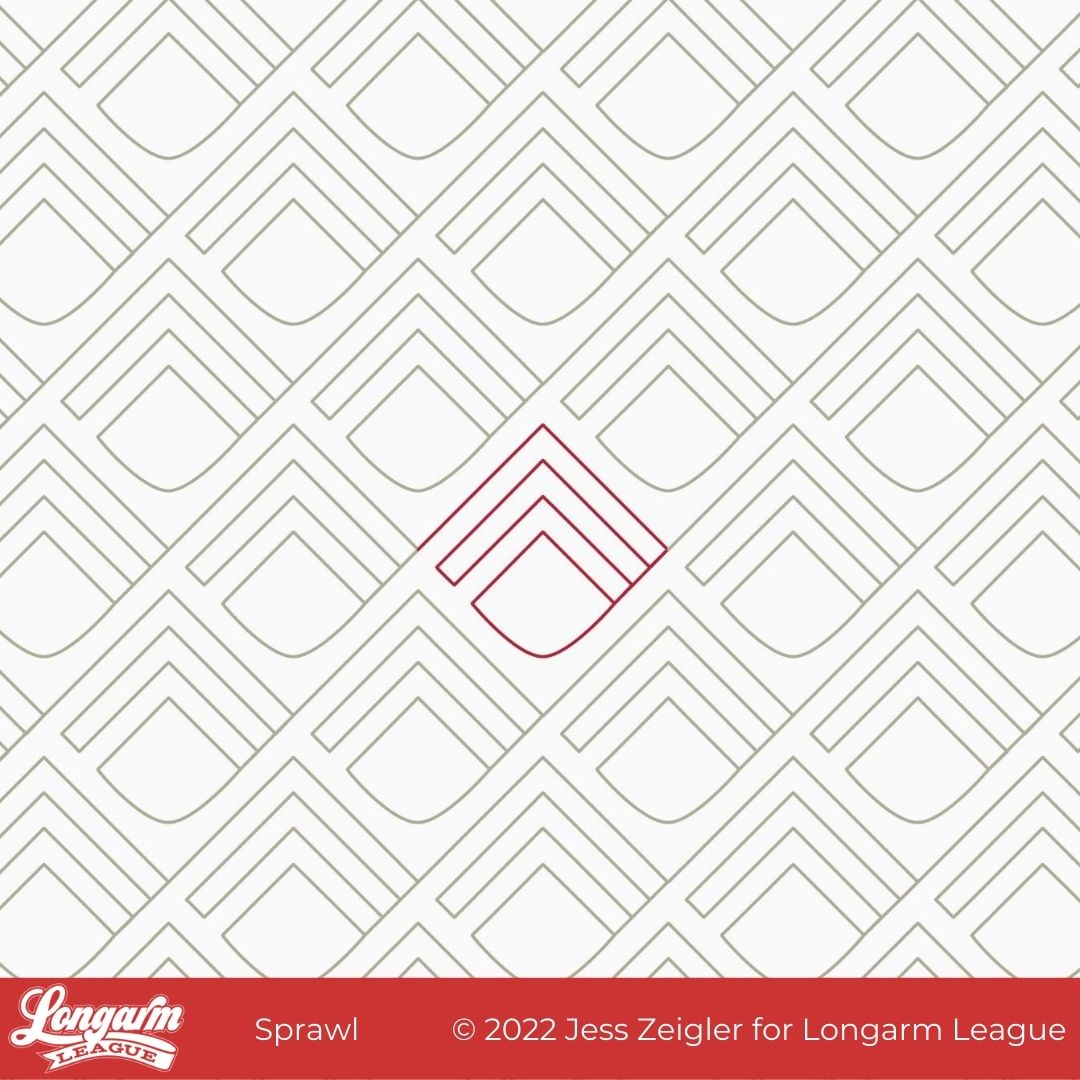
Quilty friends, this design is called Sprawl.
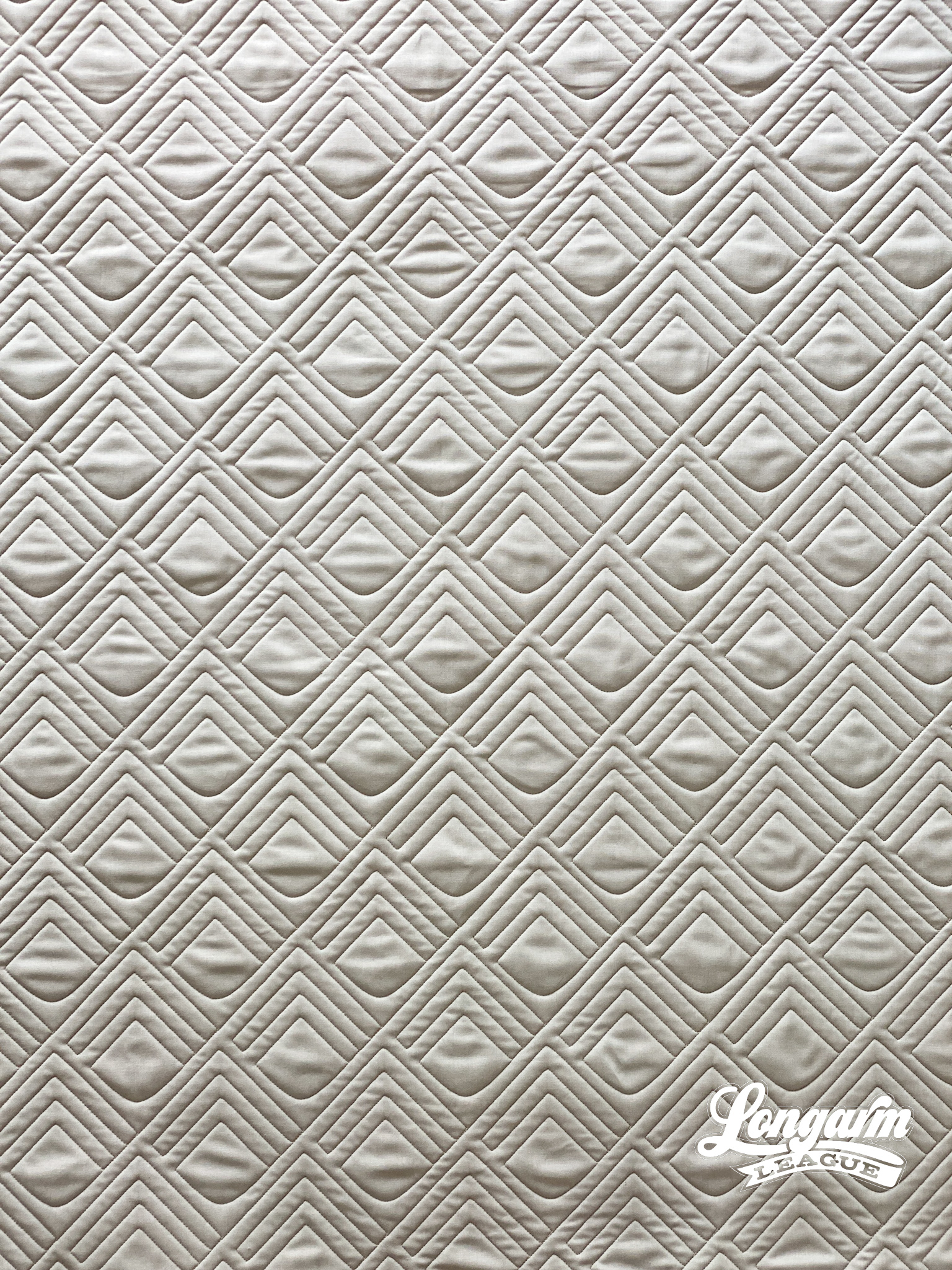
I love, love, love using echoed lines and shapes to make a textural impact. You can see that I used that technique with this design while also incorporating a small curve.
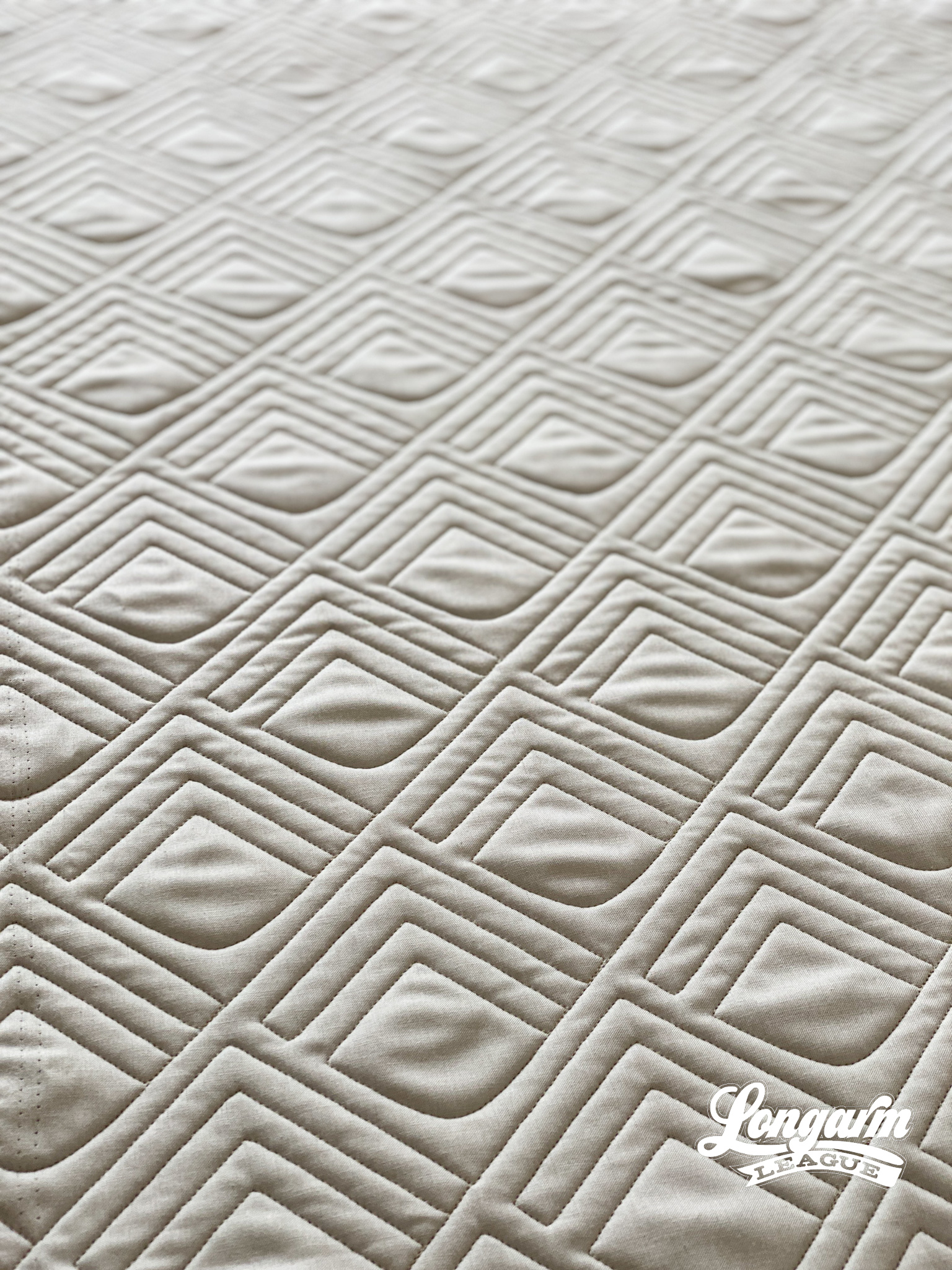
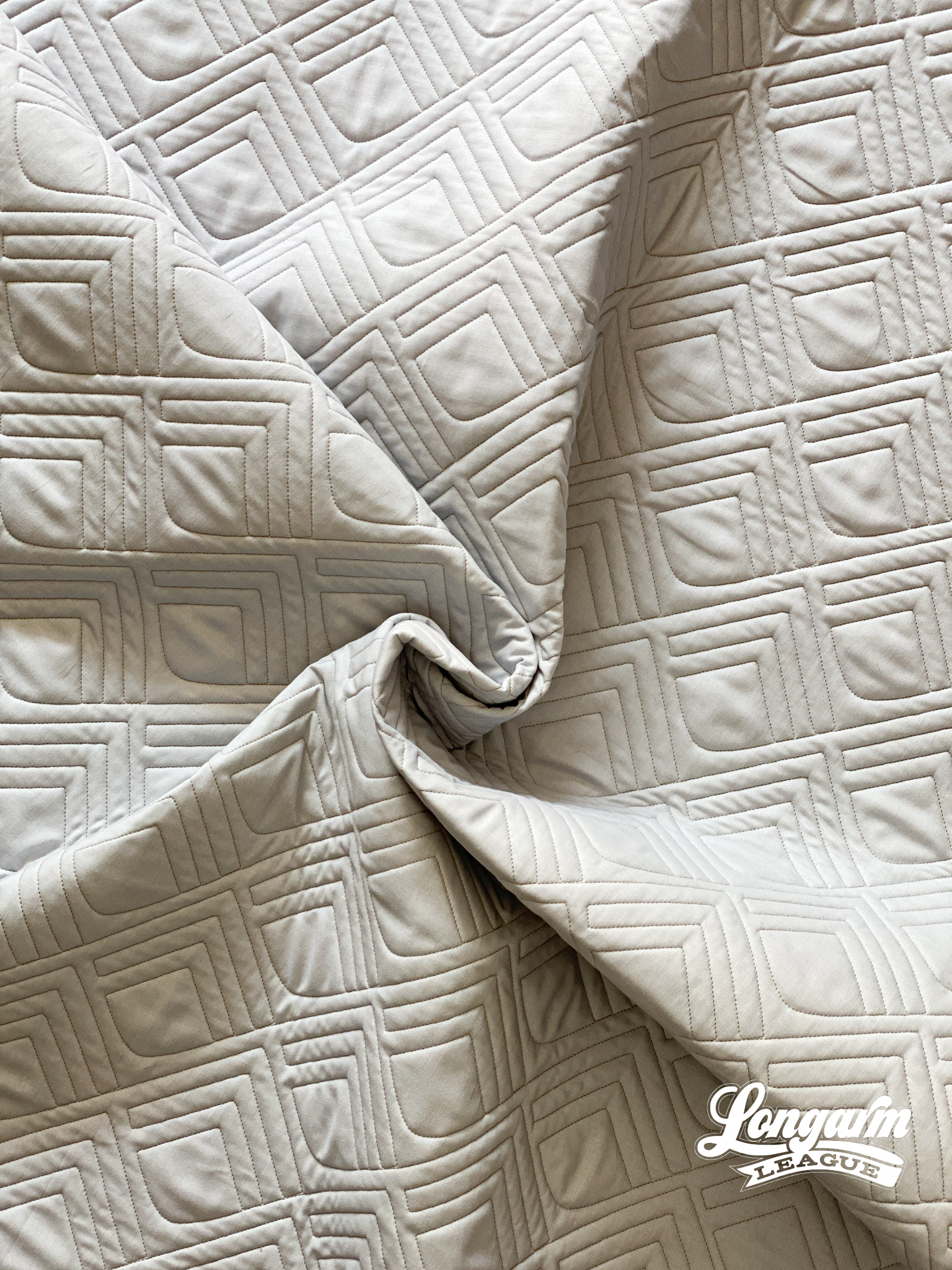
Here are my specifics using a baby-sized sample in the photos (45" x 50" quilt size):
Row height: 3"
Gap: -1.478"*
Pattern height: 4.478"
Offset: 50%
Backtracking: minimal
*Gap refers to the space I'm allowing between rows. I use an Intelliquilter for my computerized quilting, and because that measurement is quantifiable, I provide it here.
The row height PLUS the noted gap amount totals the "pattern height". If you don't use an Intelliquilter, you'll likely want to start sizing with the pattern height number and adjust the spacing between rows to your liking. You may not have a measurement available that tells you the measurement between rows, and that's okay.
We've begun adding a PDF to our zipped file so that you can print out design images and add your ...
Bookmarks Digital Pantograph Quilting Design
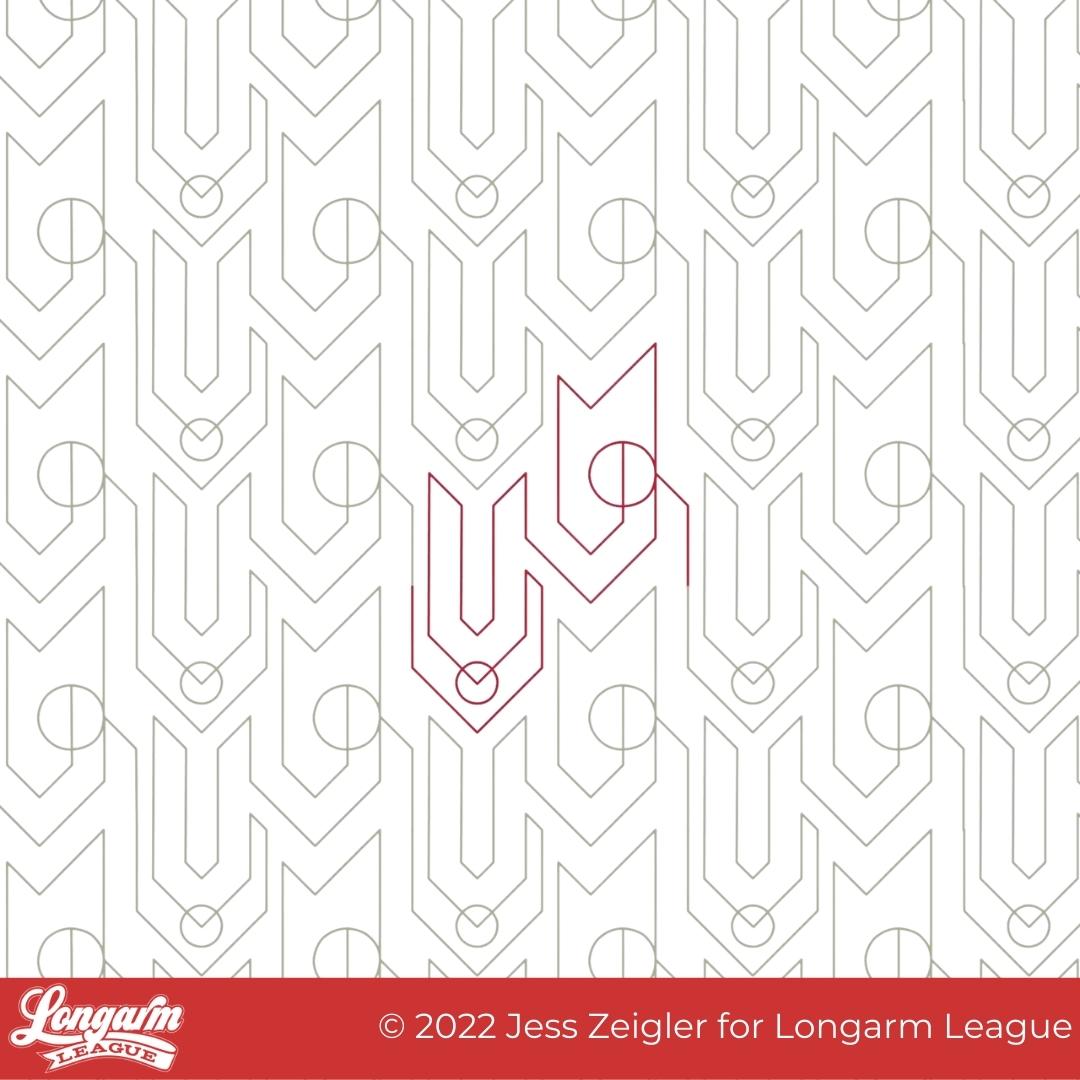
This digital pantograph design is called Bookmarks. Can you see why? Josh and I thought that it looked like those markers that you can slide over a page to keep your pace in a book.
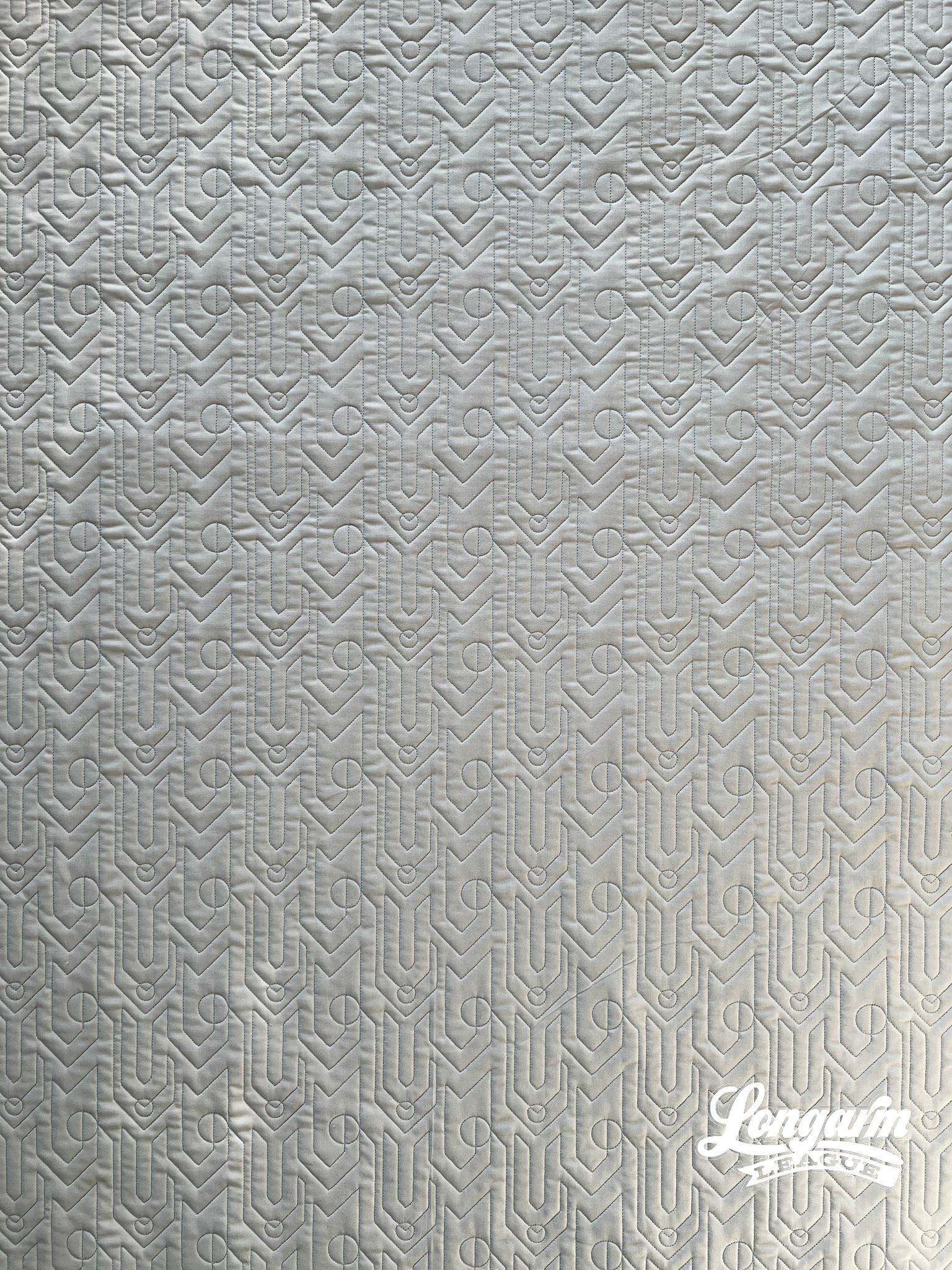
This design is as geometric as it gets! It includes straight lines, angles, and circles. If you have a quilt with column-like or vertical elements, this design would certainly accentuate it. I see this as being a good fit for a modern quilt top.
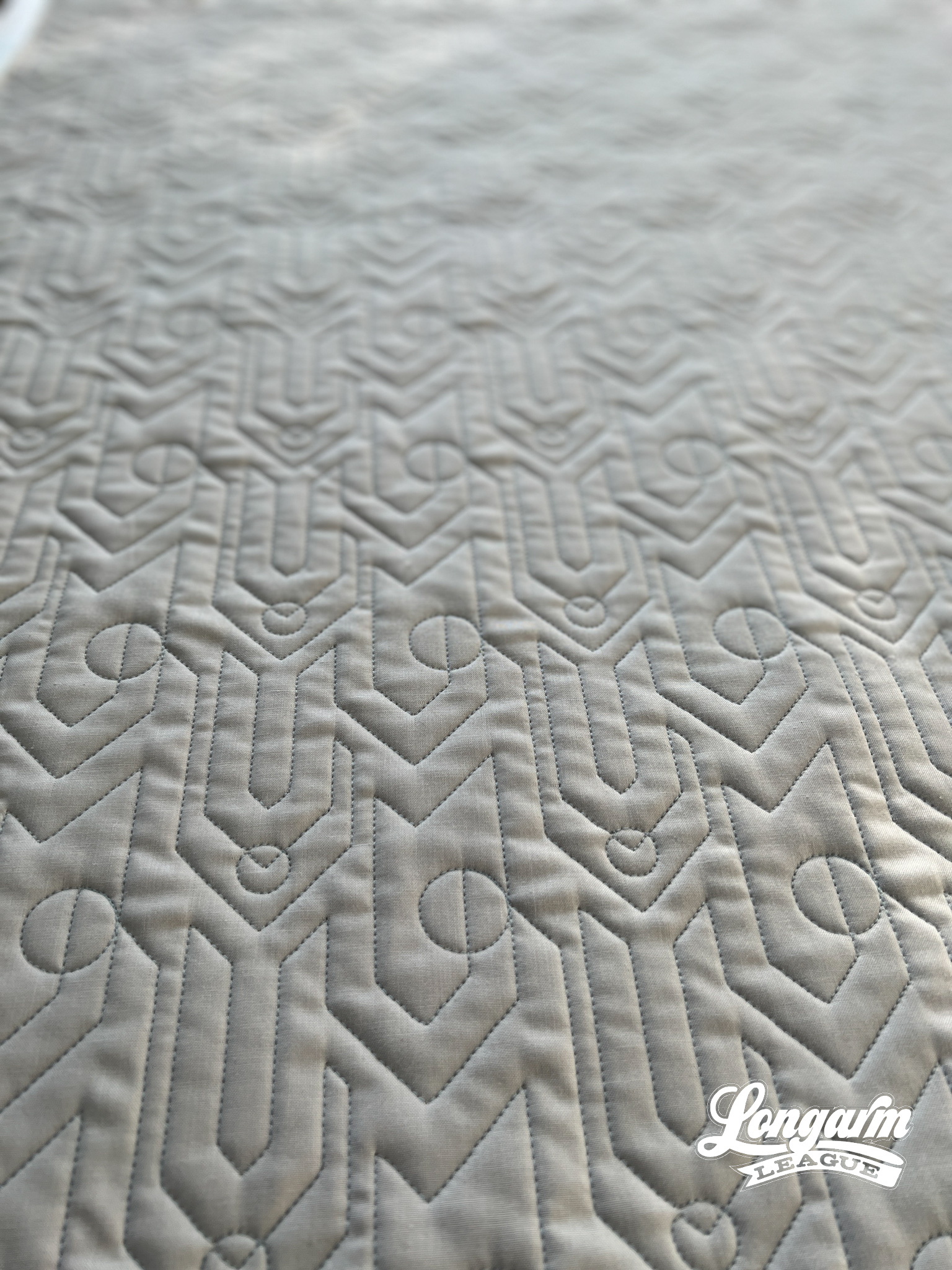
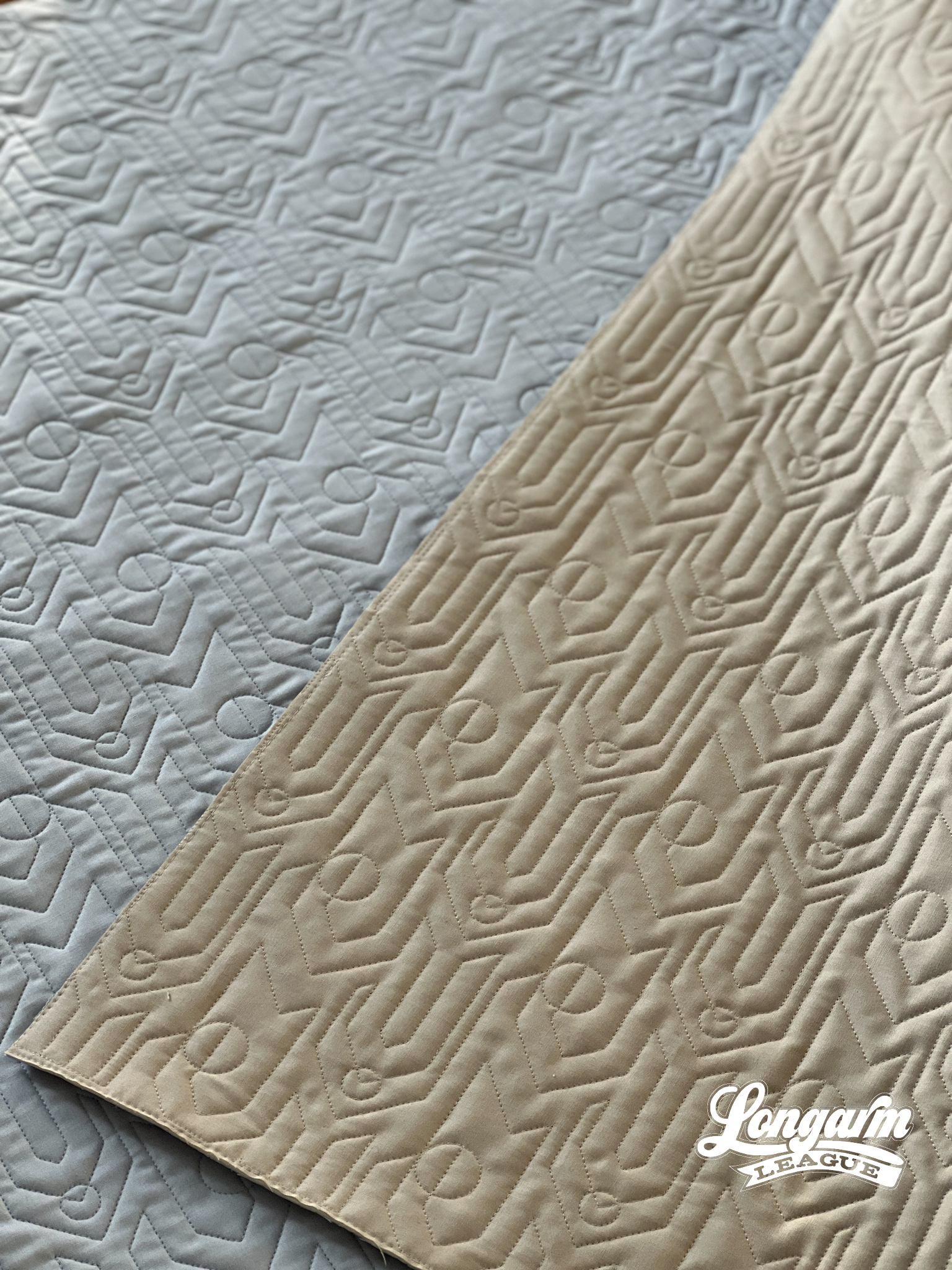
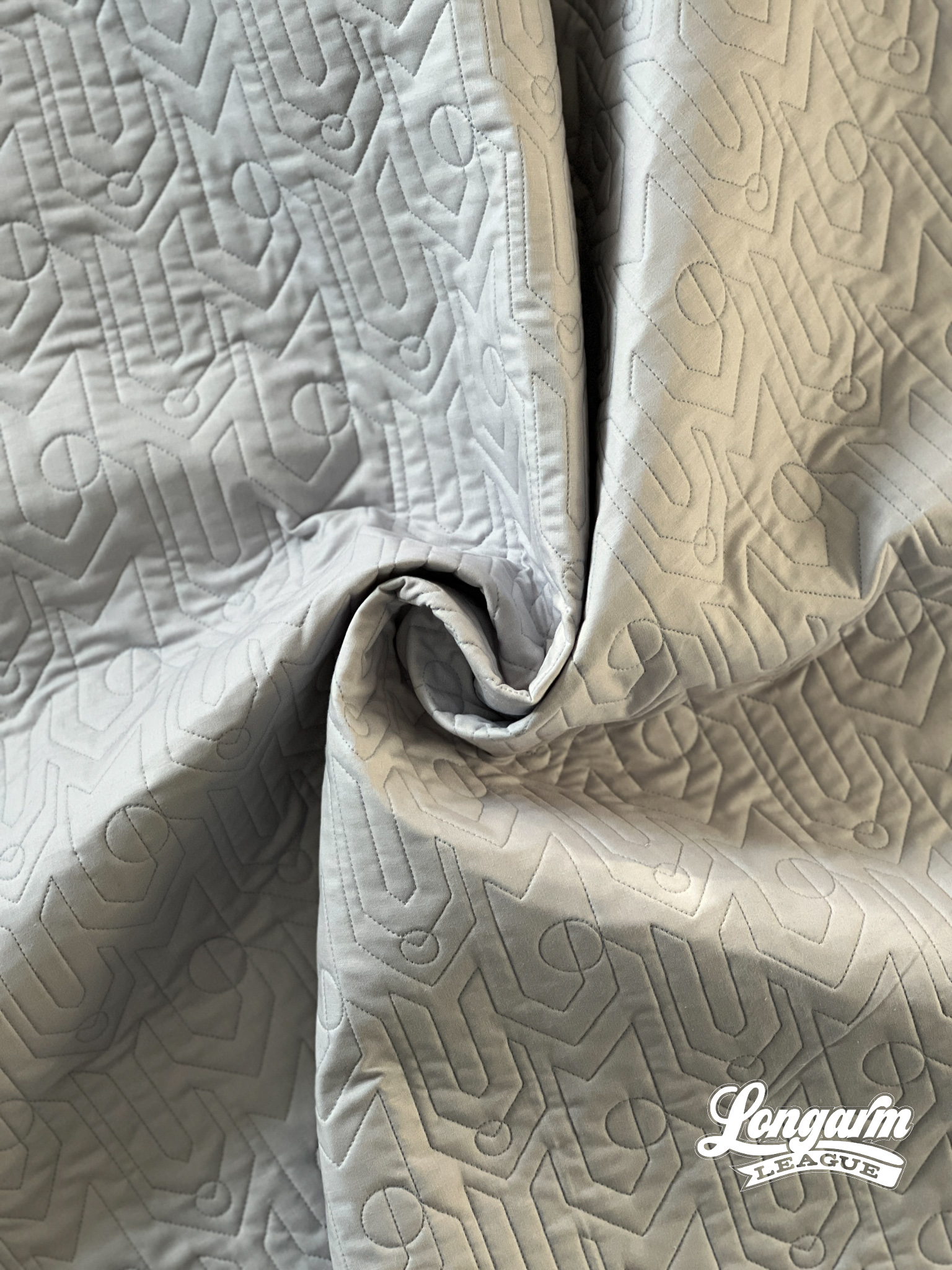
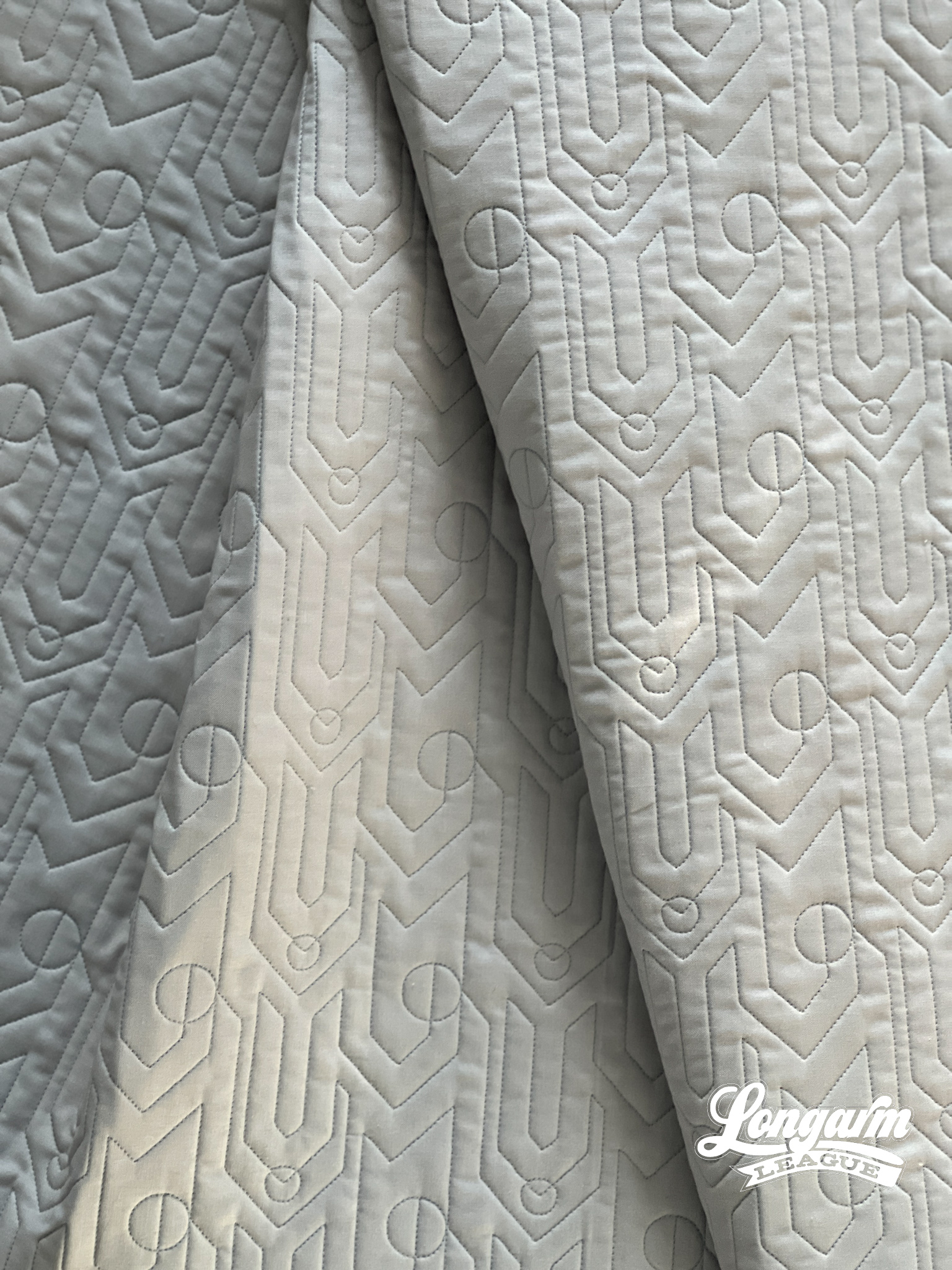
Here are my specifics using a baby-sized sample in the photos (45" x 50" quilt size):
Row height: 4"
Gap: -2.25"
Pattern height: 6.25"
Offset: none
Backtracking: minimal
I use an Intellquilter as my computer system (on my 20+ year old APQS Millennium), so your terms might differ as far as row height and pattern height. Basically, the pattern height is the total measurement from the top to the bottom of the design.

The only bit of backtracking is a quarter of the bigger circle as it travels from the outside of the shape to the inside of the shape.
Fleur Drive Digital Pantograph Quilting Design
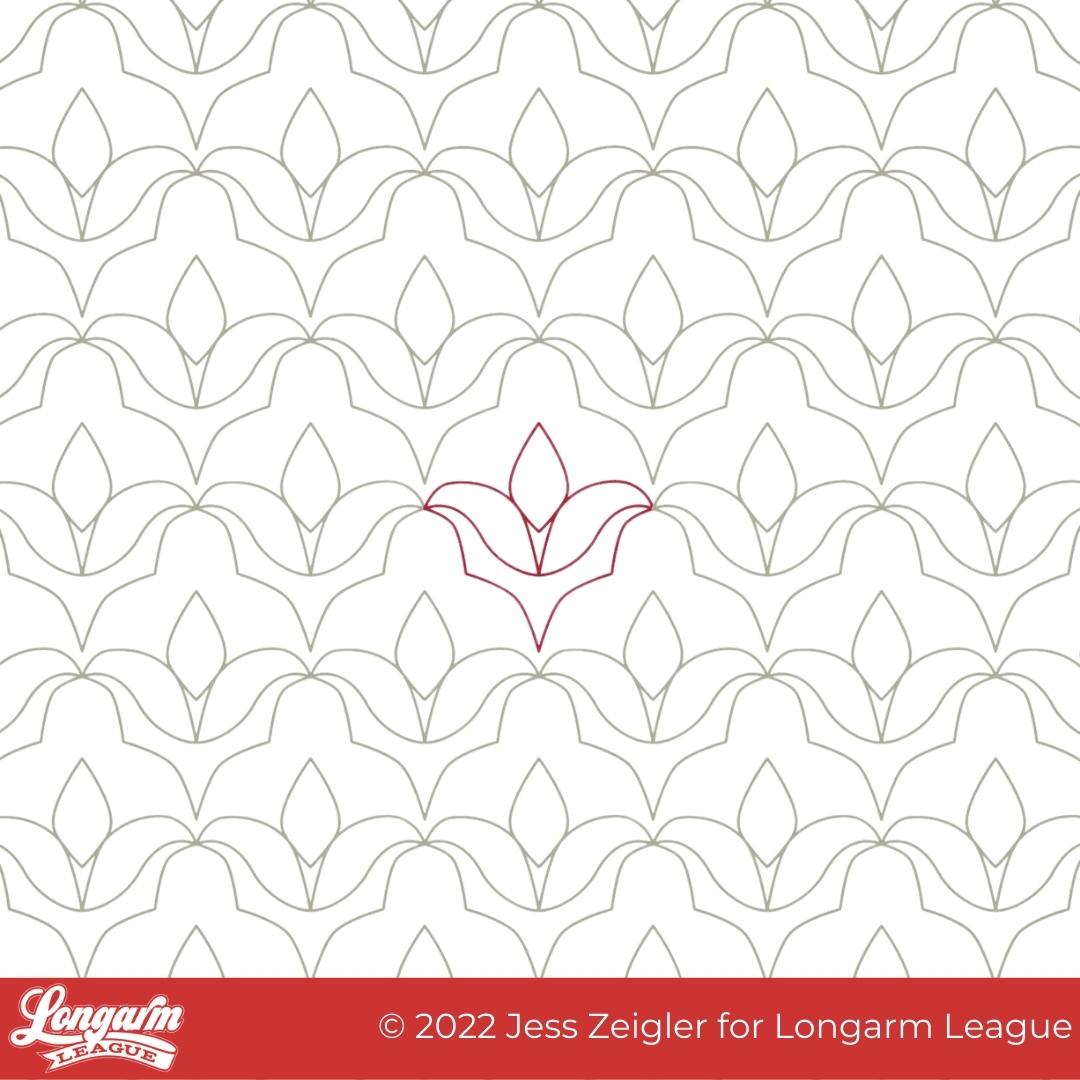
Meet Fleur Drive. It's got a sweet sophistication that'll add a touch of class to your next quilt top.
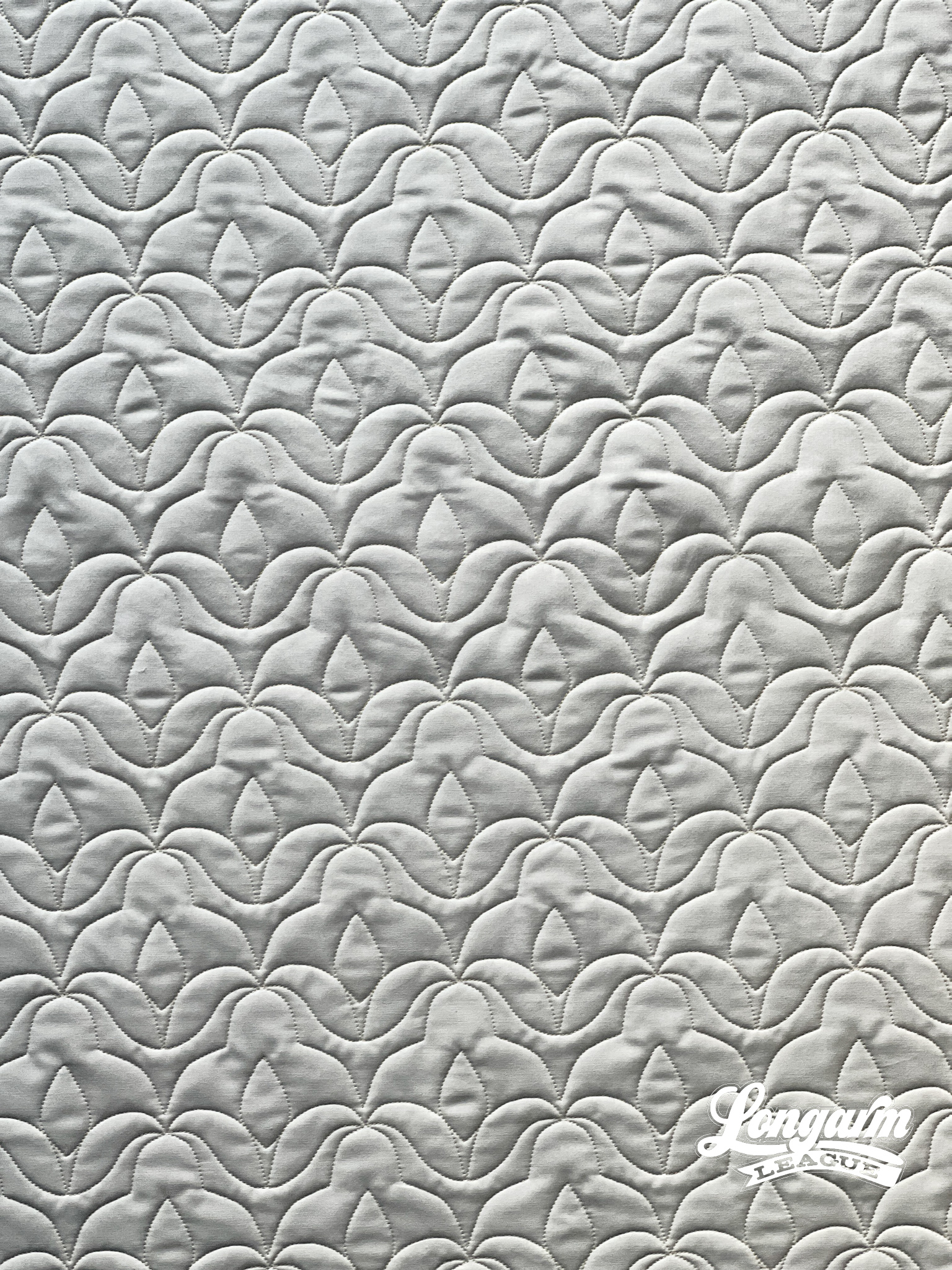
The scalloped bottom edge of the motif has a beautiful way of integrating into the row below. One man's ceiling is another man's floor, as Paul Simon would say.
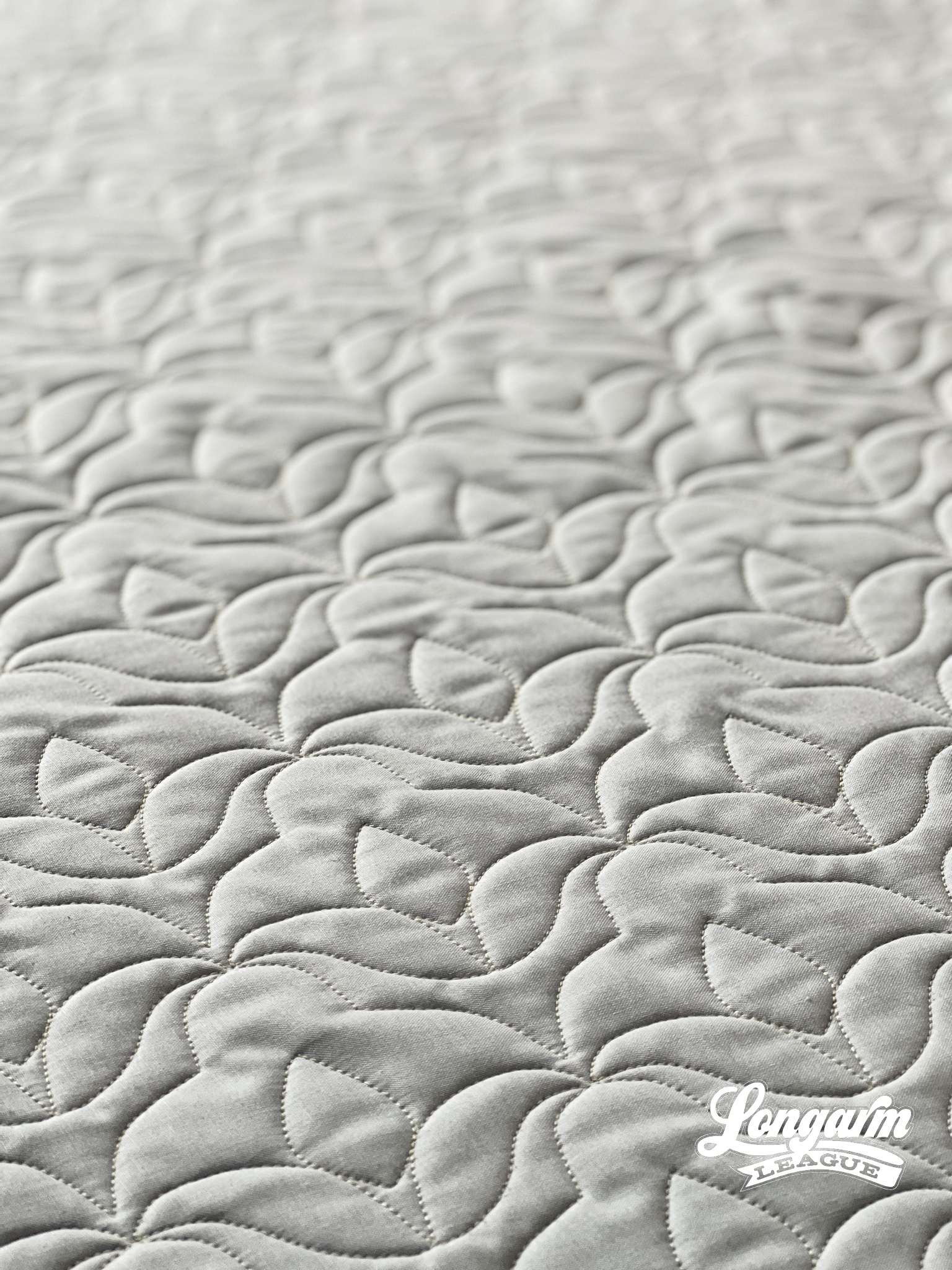
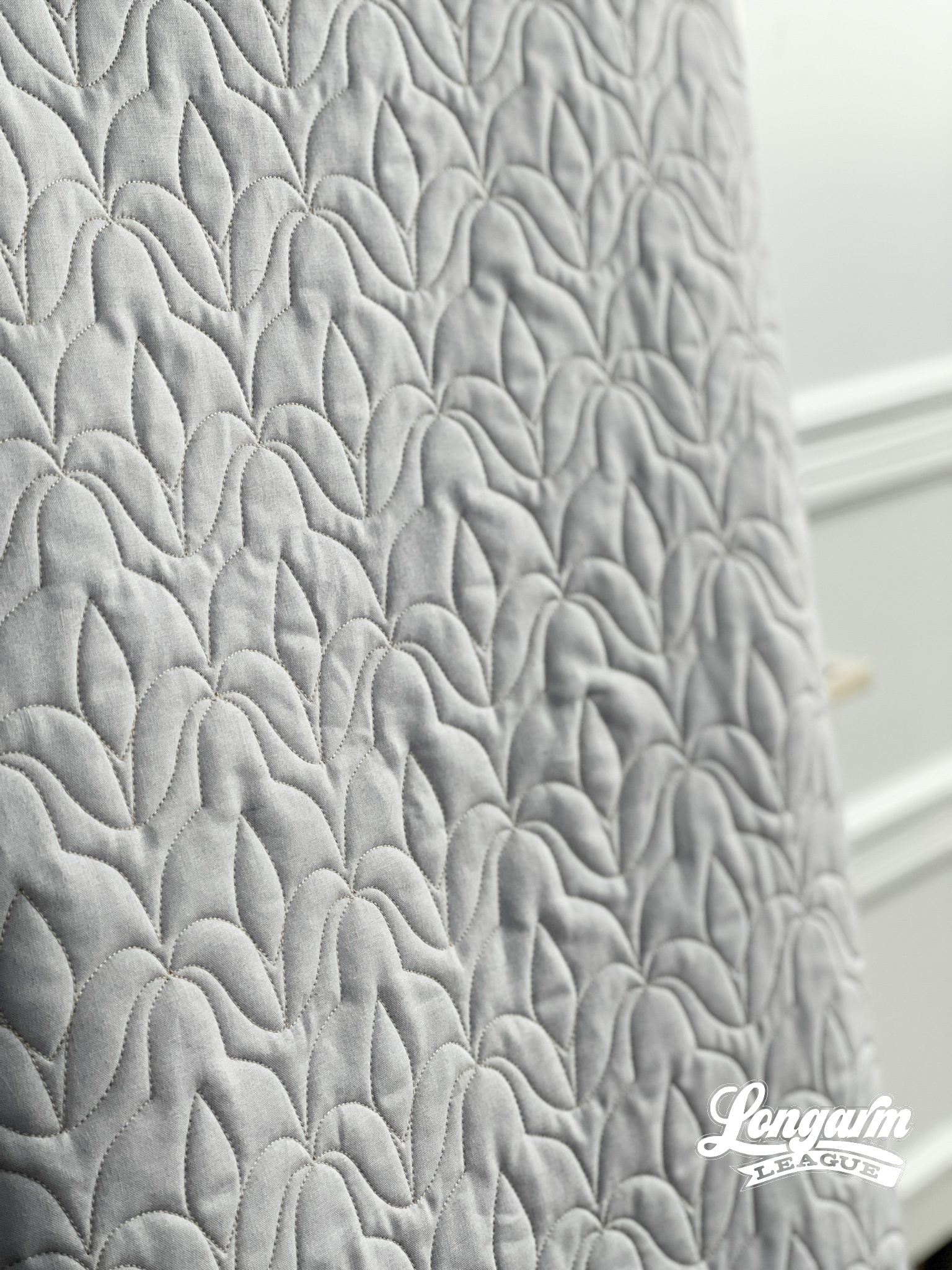
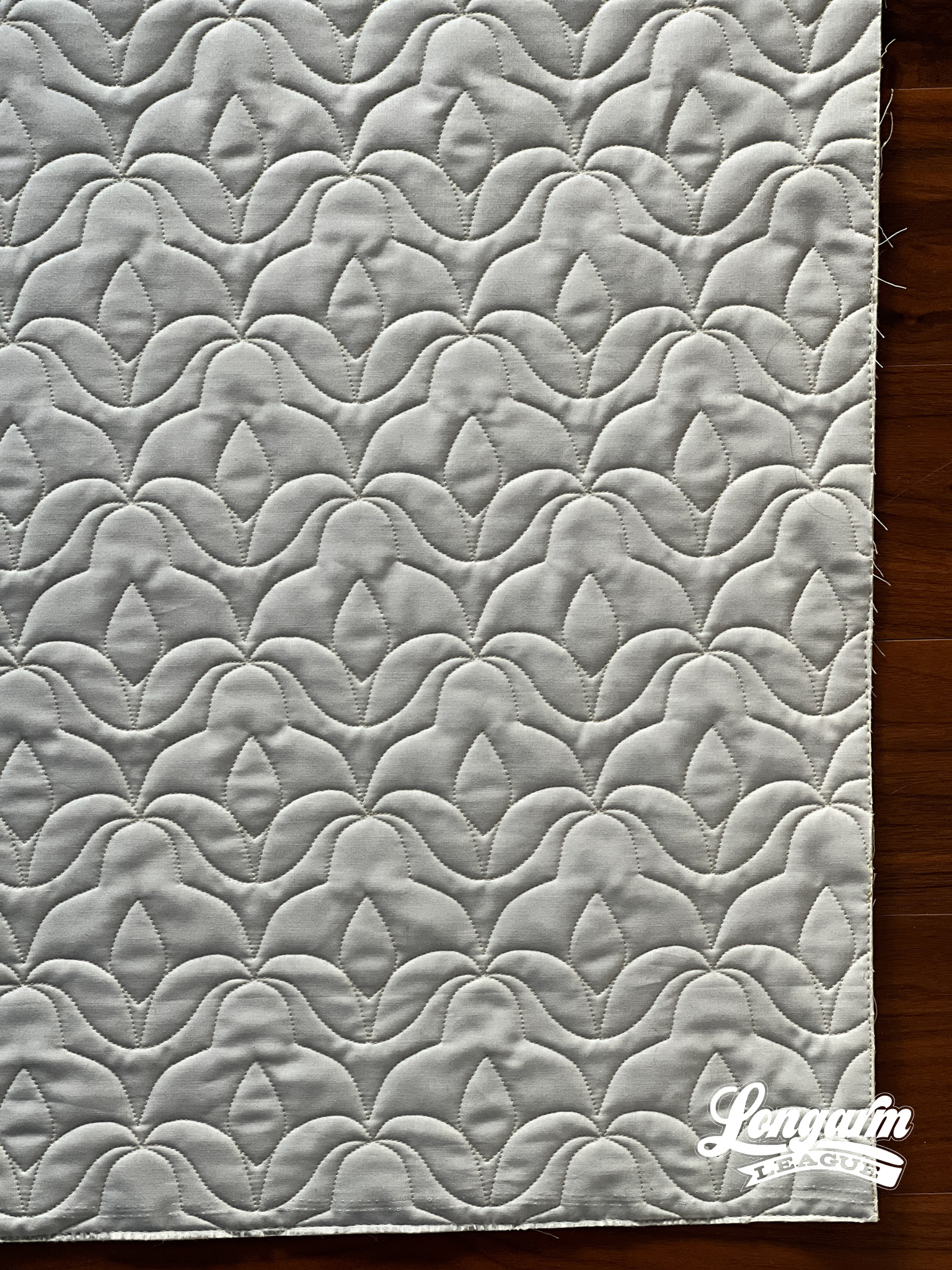
The stitching is simple and straight-forward. It does require every other row to be offset or staggered.
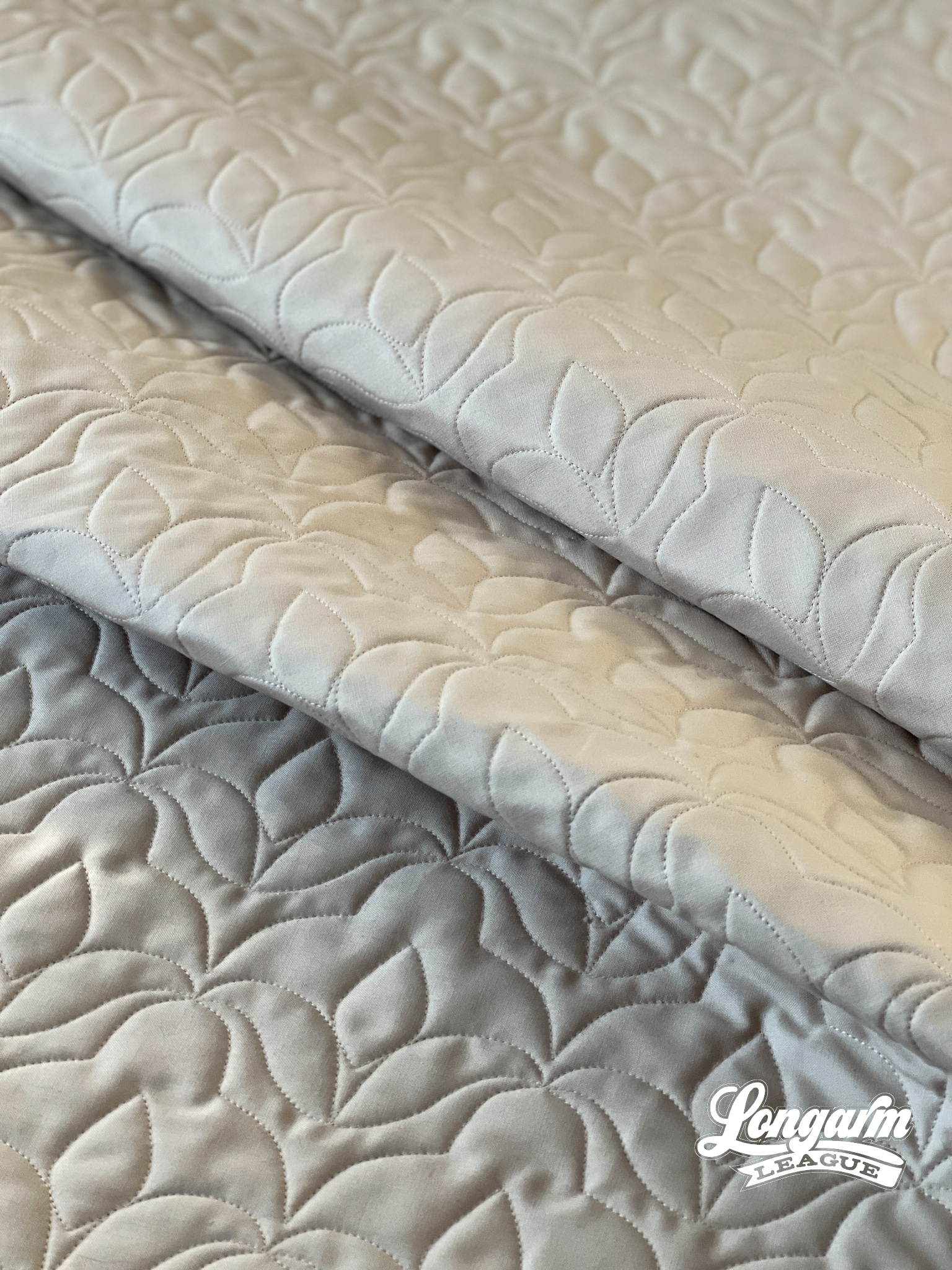
Here are my specifics using a baby-sized sample in the photos (45" x 50" quilt size):
Row height: 3"
Gap: -1.225"
Pattern height: 4.225" (distance from the top to bottom of the repeat)
Offset: 50%
I use an Intellquilter as my computer system, so your terms might differ. I can tell you I started with a pattern height at nearly 5" and it was too large of a scale for my taste... so I ripped out the first row and started again. Part of that might have been due to the scale in relation to this smallish quilt.
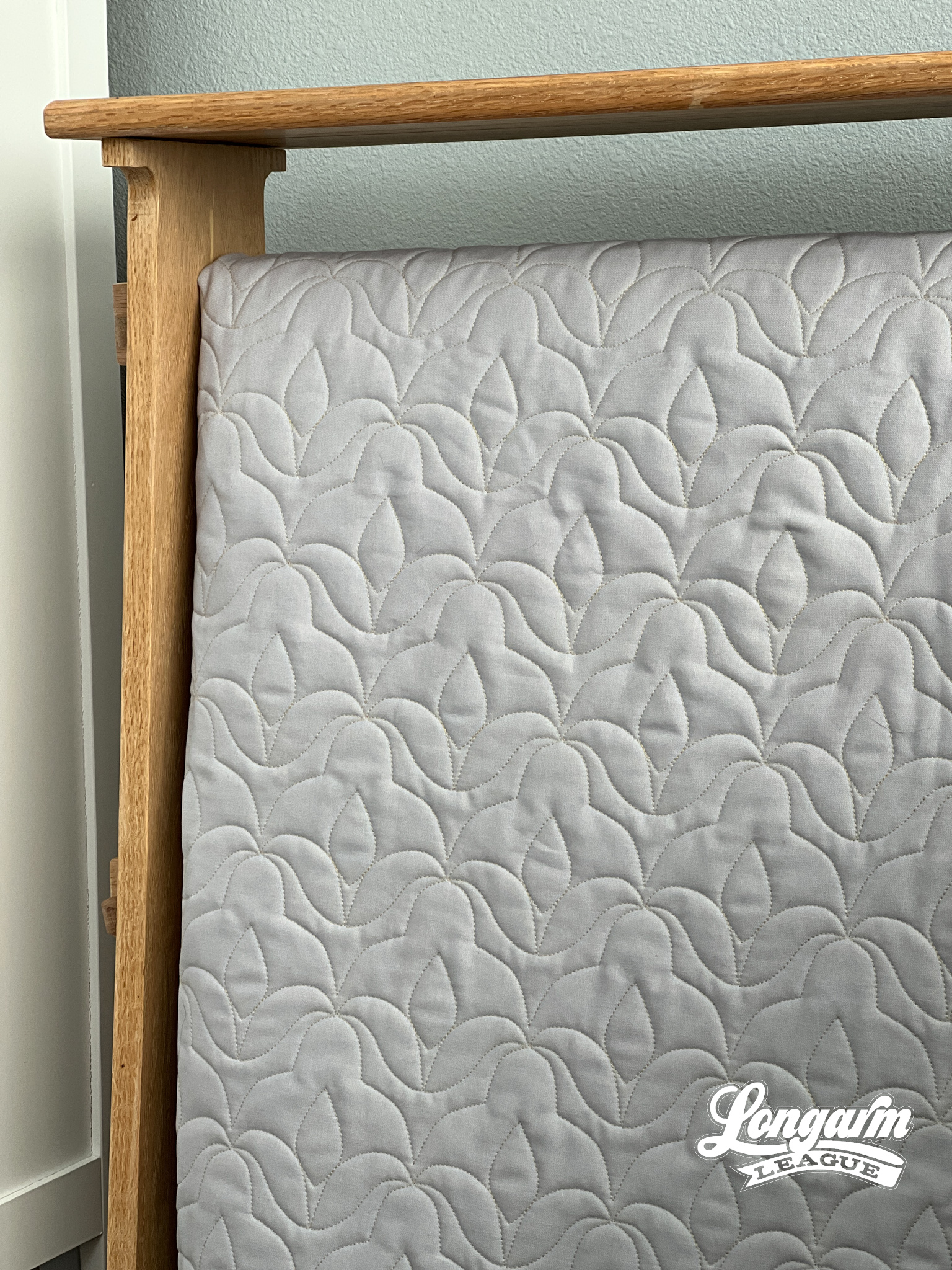
There's no backtracking with this design. It does require a 50% offset, or staggering every other row.
Exes Digital Pantograph Design
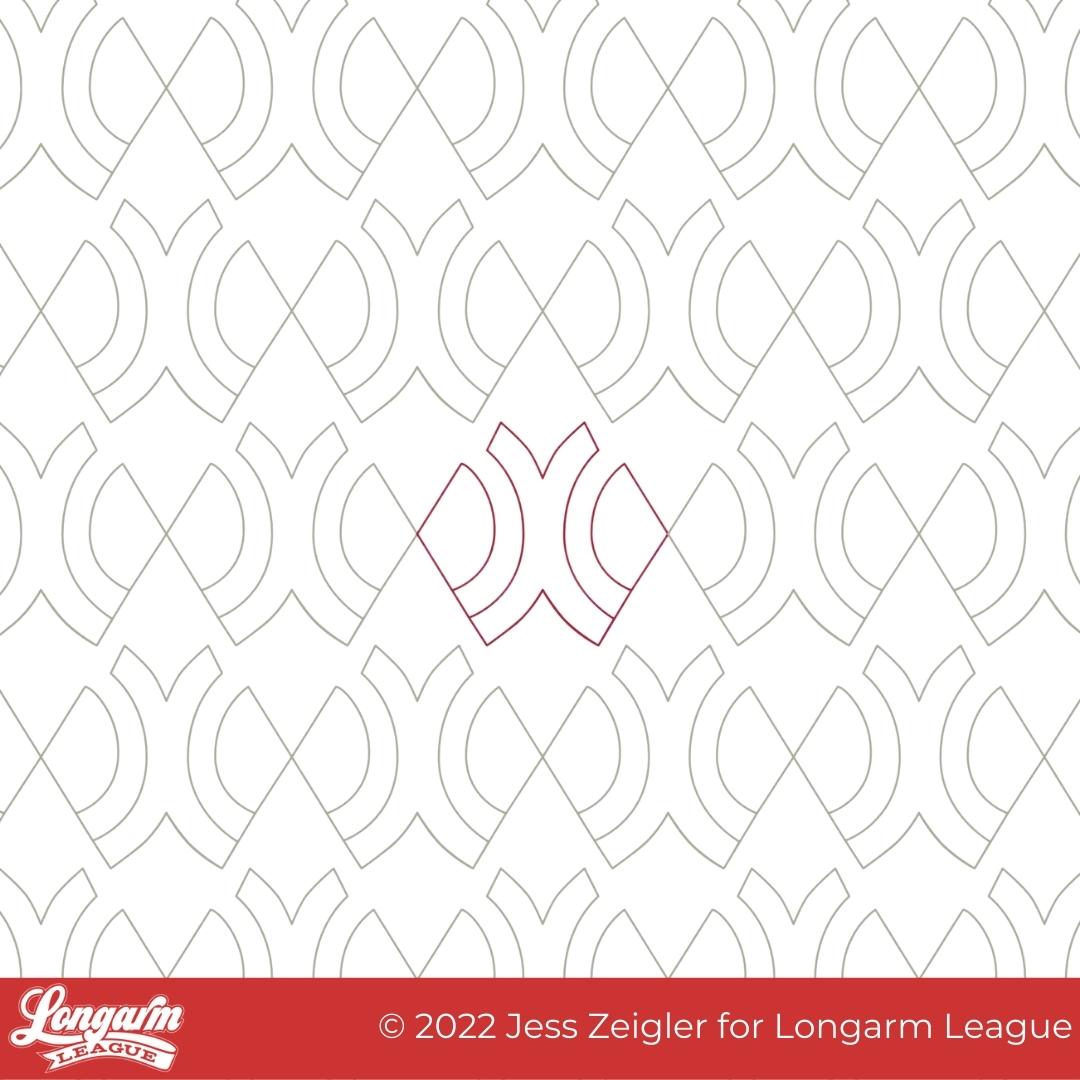
This is Exes.
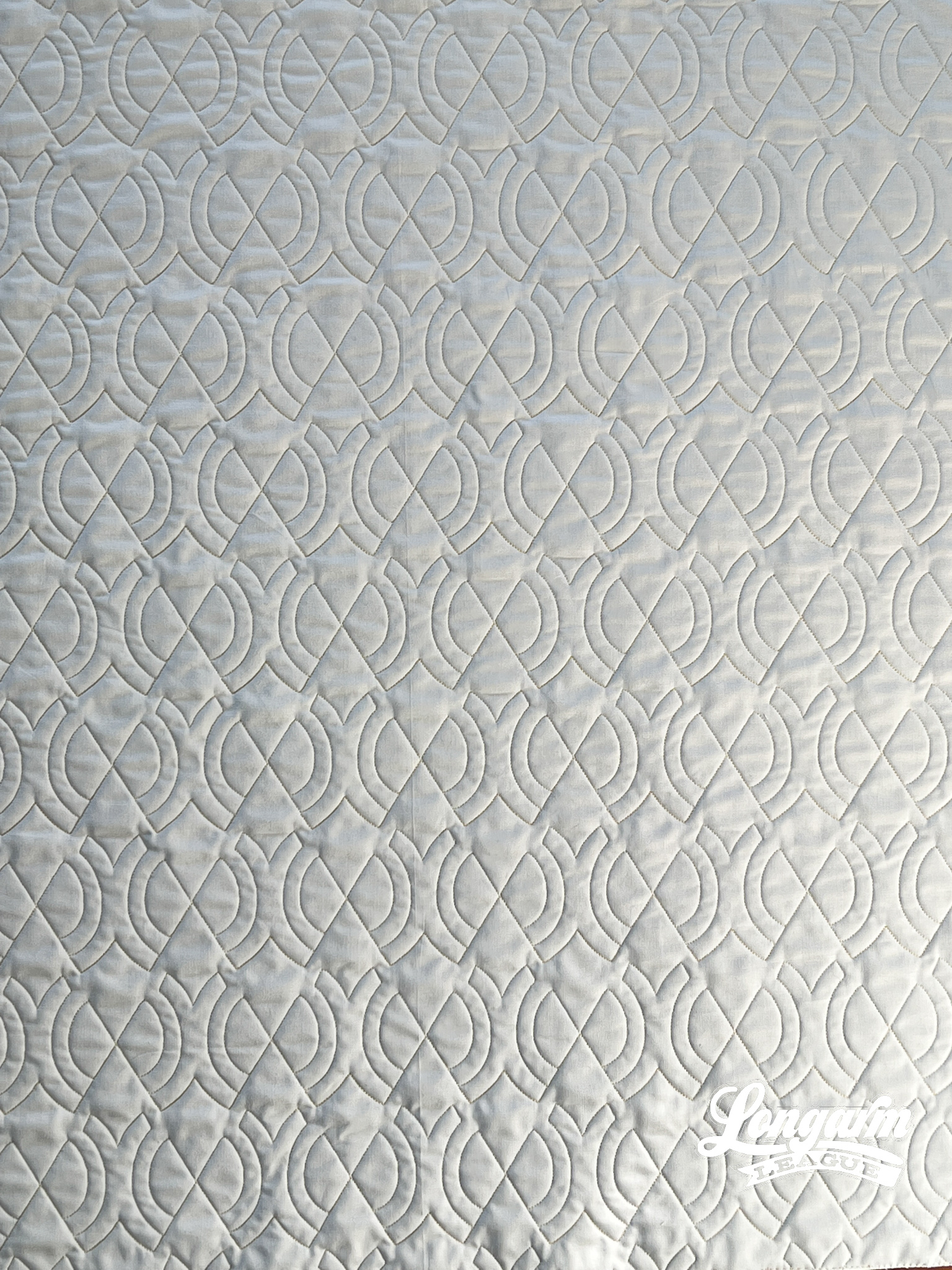
What I love about the design is the combination of straight and curved lines. Not only that, but the curved lines are echoed to make an even bigger impact. The straight lines give an overall argyle effect, making triangle and diamond shapes emerge.
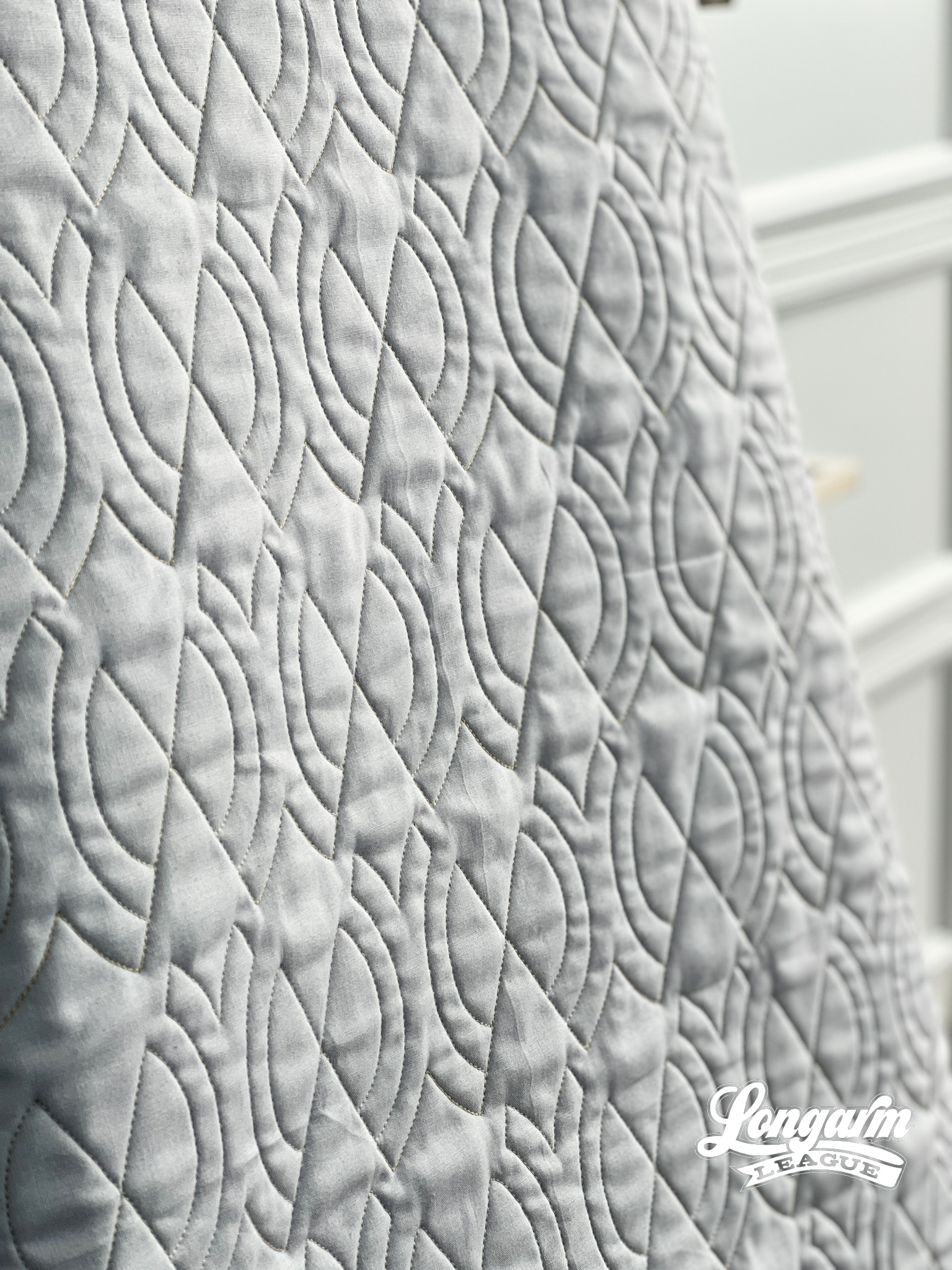
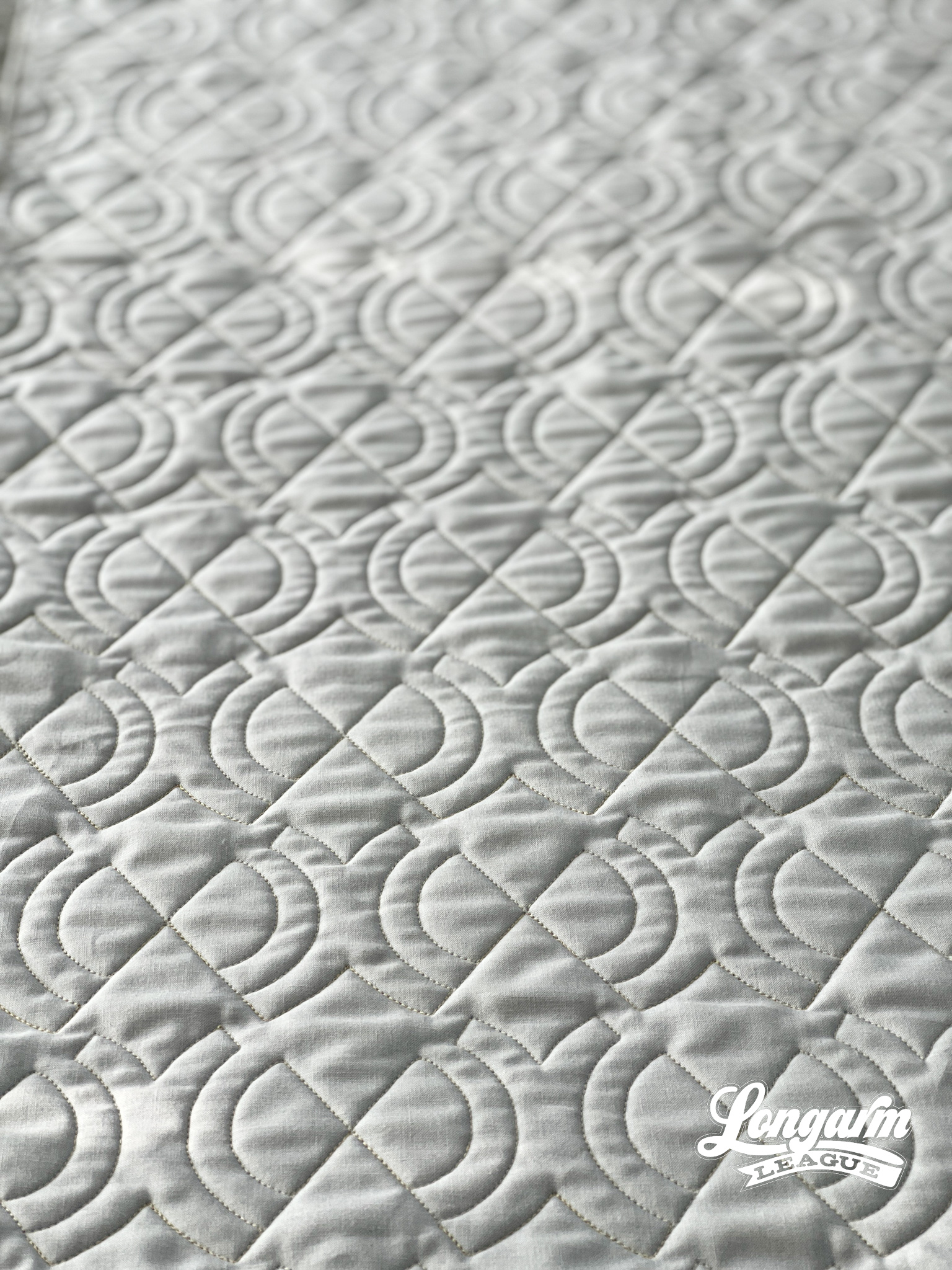
The result of the straight and curvy lines is a unique texture that employs a bit more "negative" space built into the design than a lot of my other designs.
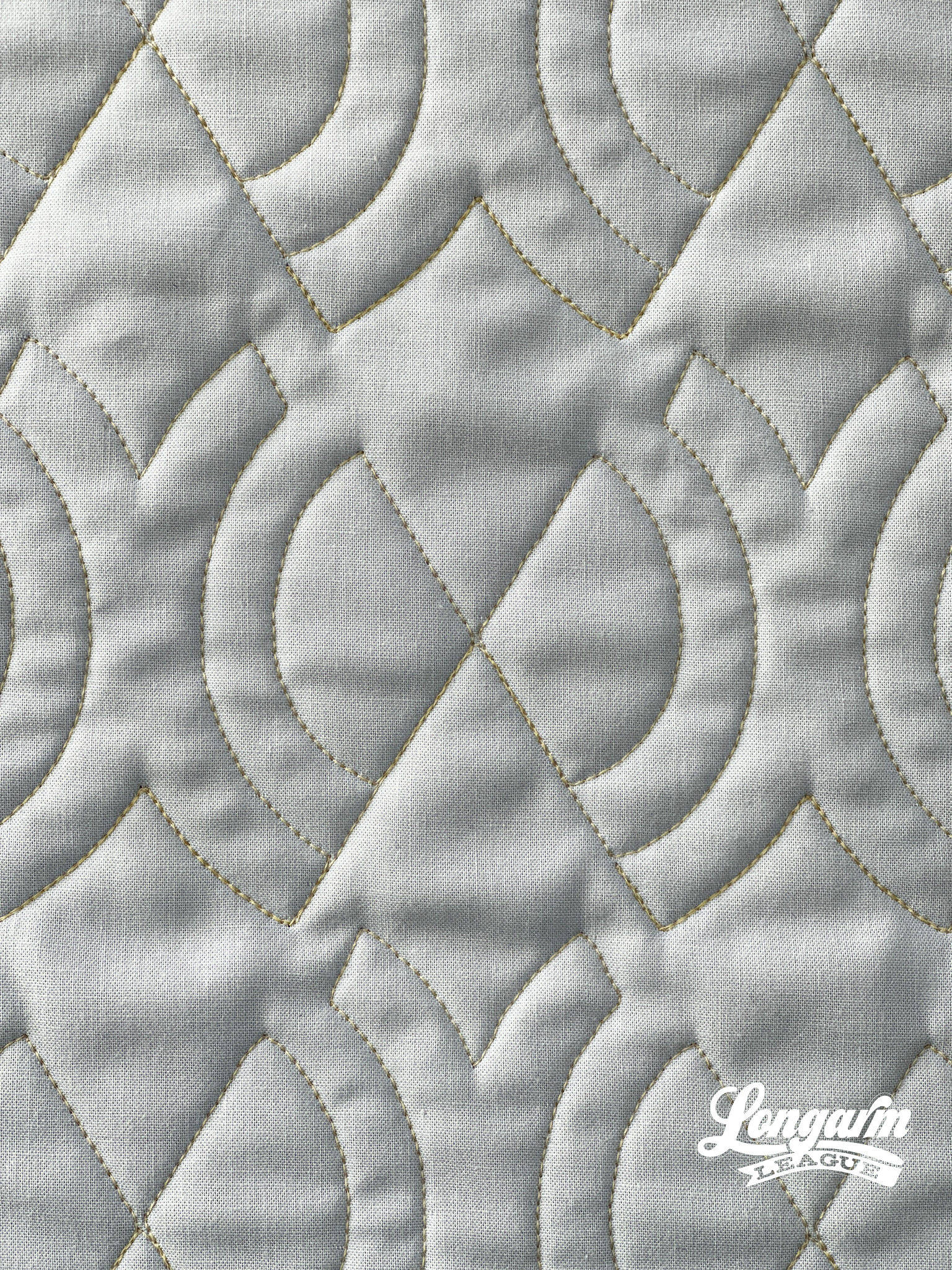
Technically speaking, the stitch-out is easy. You will have to offset or "stagger" every other row by 50%.
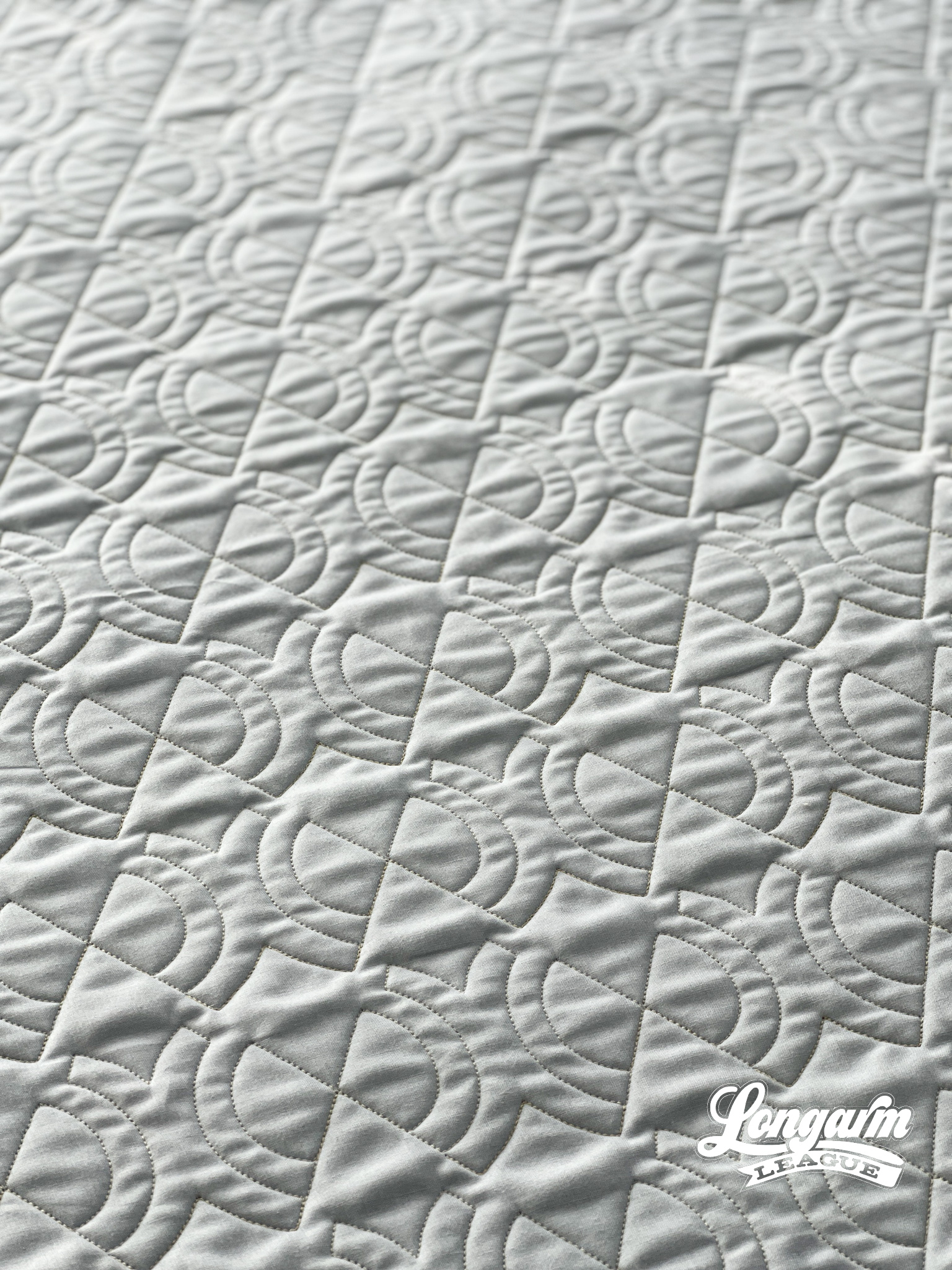
Here are my specifics using a baby-sized sample in the photos (45" x 50" quilt size):
Row height: 4"
Gap: 0"
Pattern height: 4"
I use an Intellquilter as my computer system, so your terms might differ. You do not have to adjust the space between rows as using the offset of every other row will prevent any overlapping.
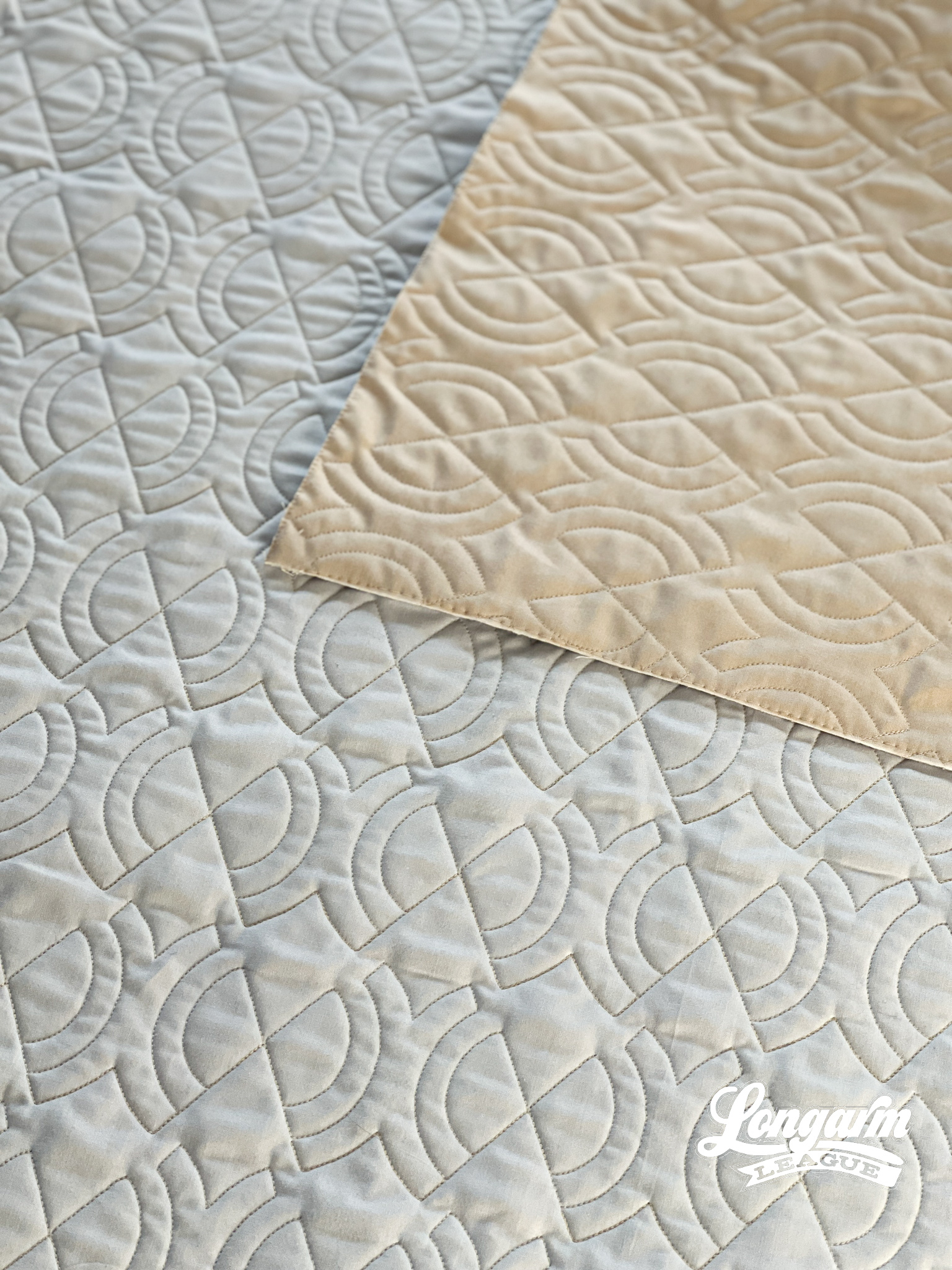
There is a decent amount of backtracking involved in this design. I didn't find it troublesome as I was stitching it out. You can ...








